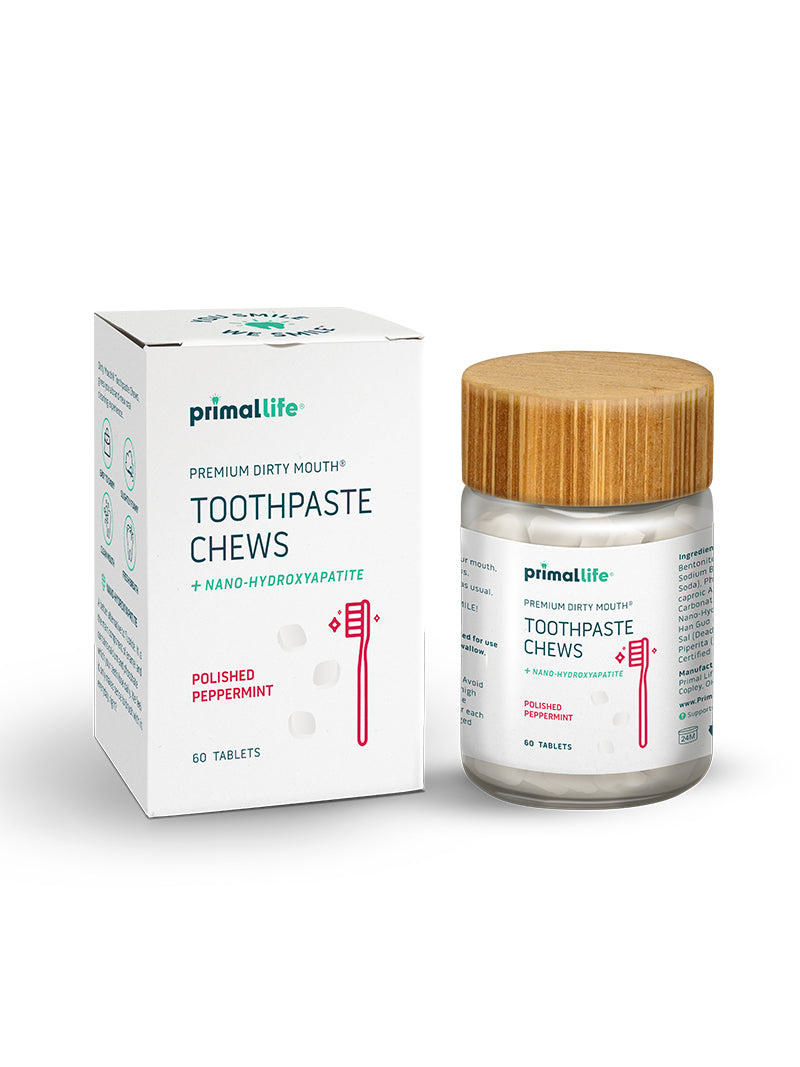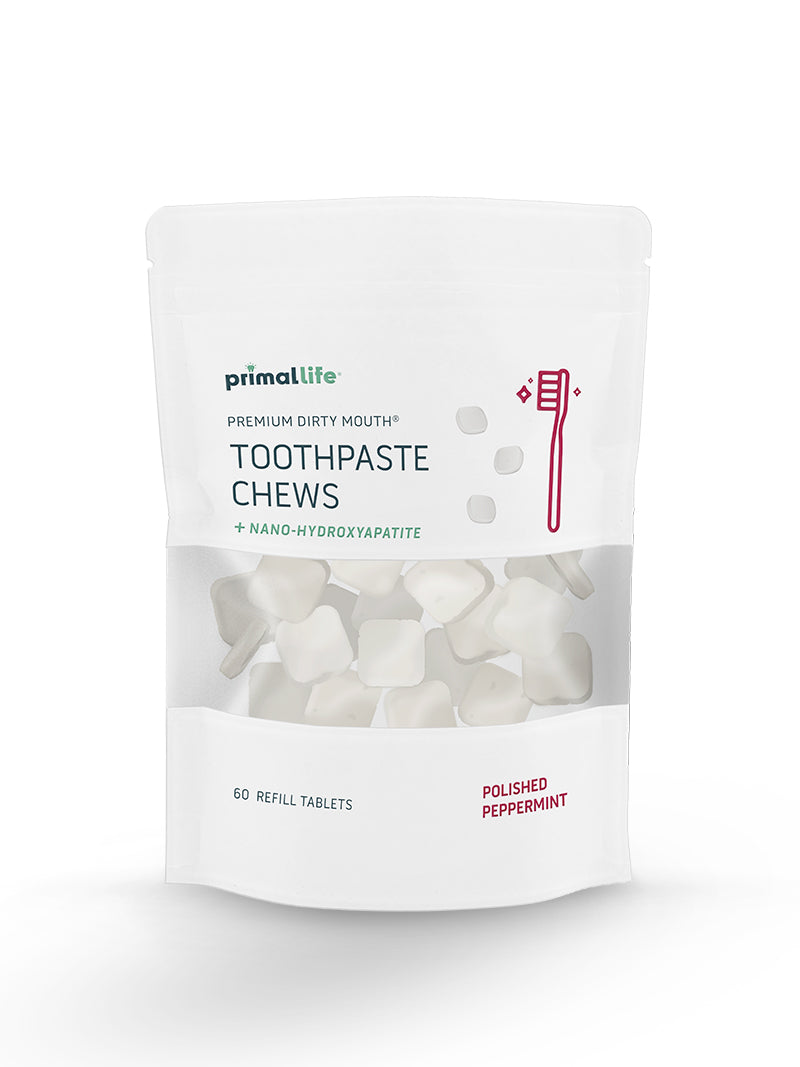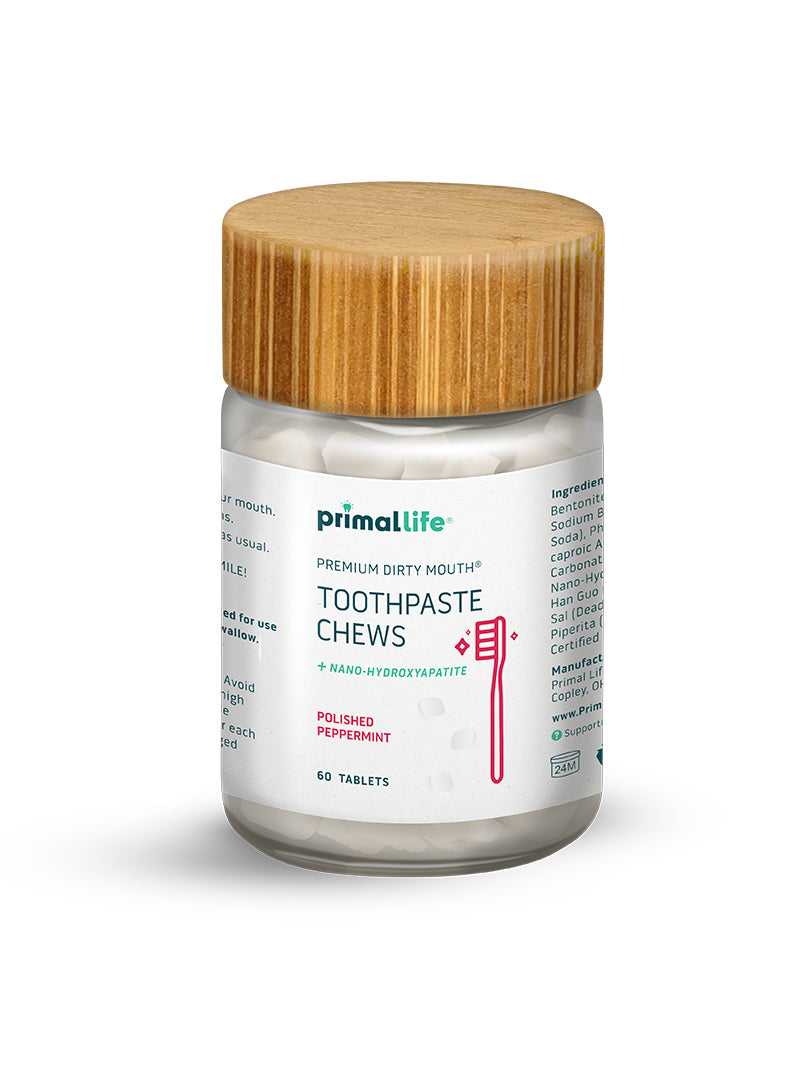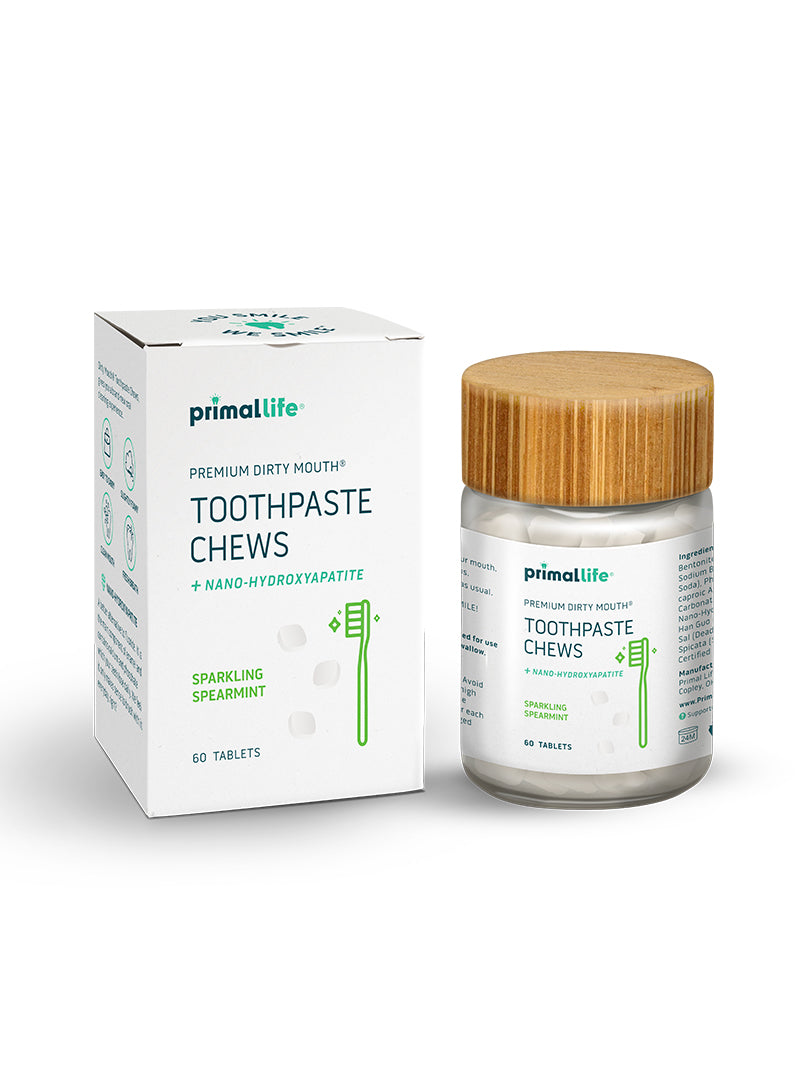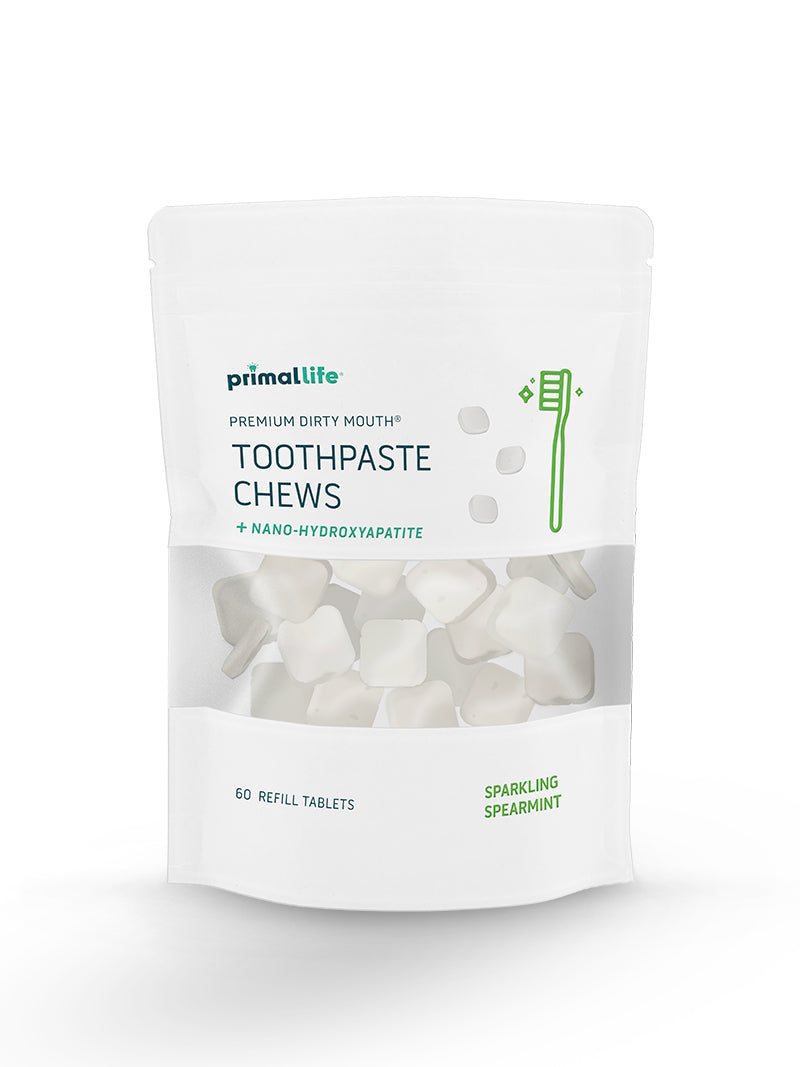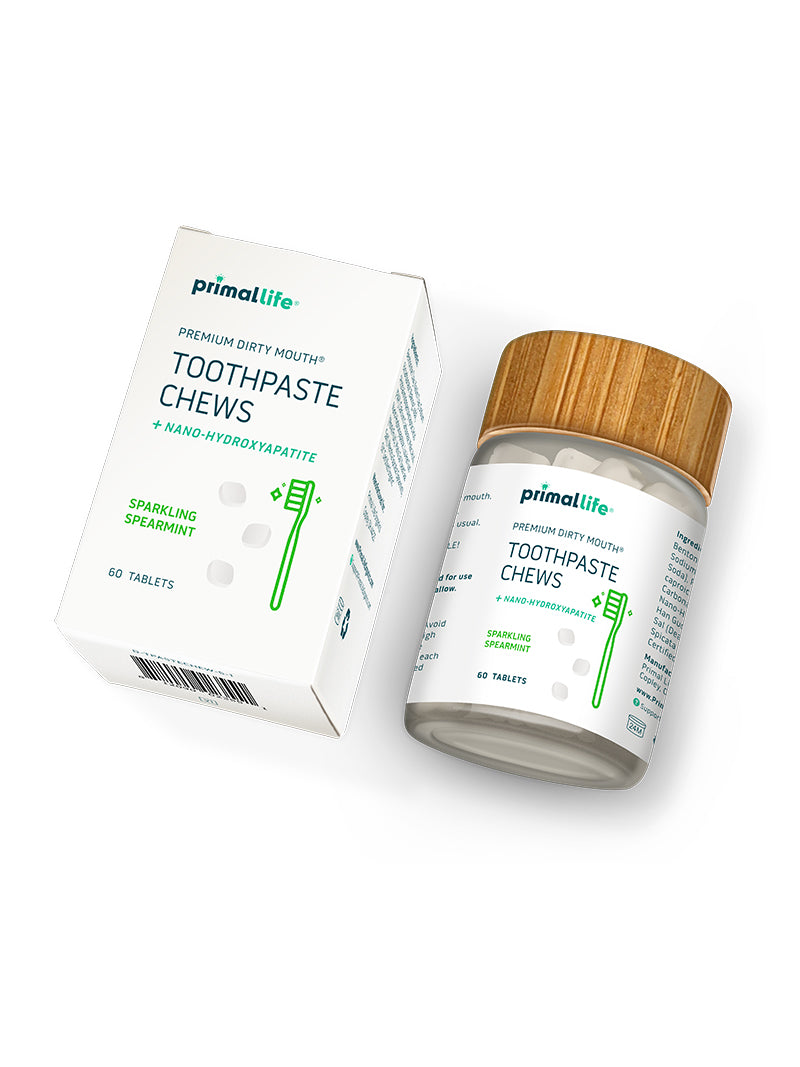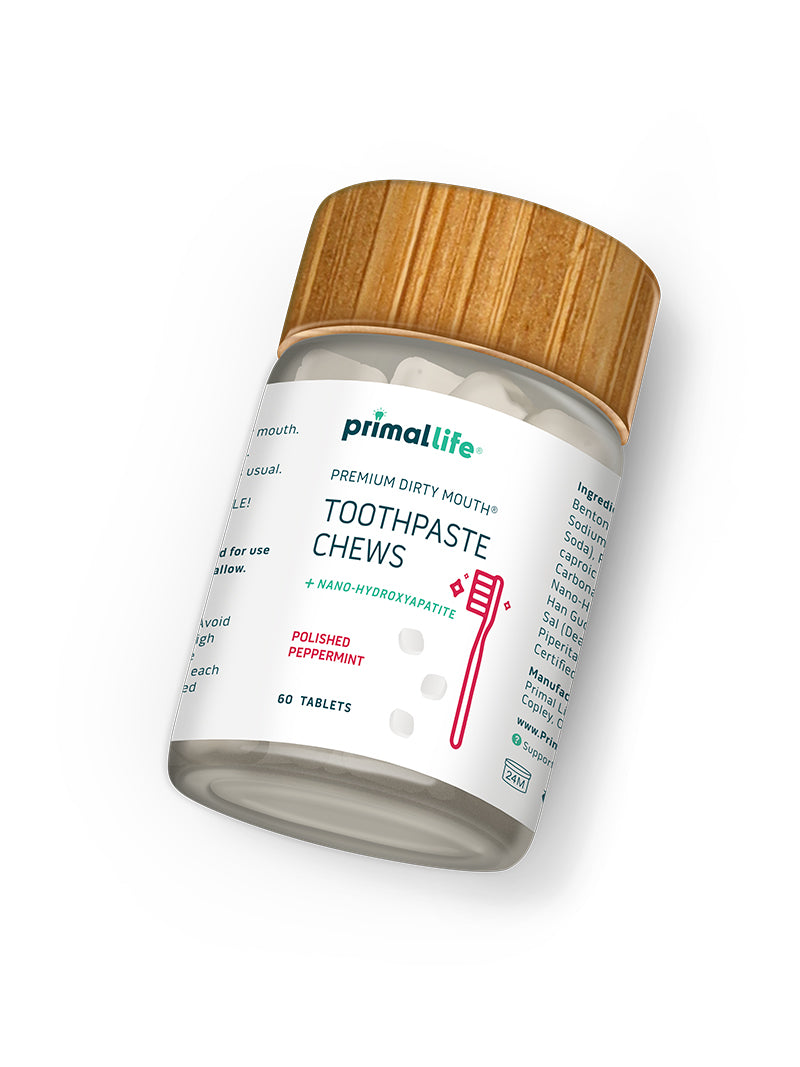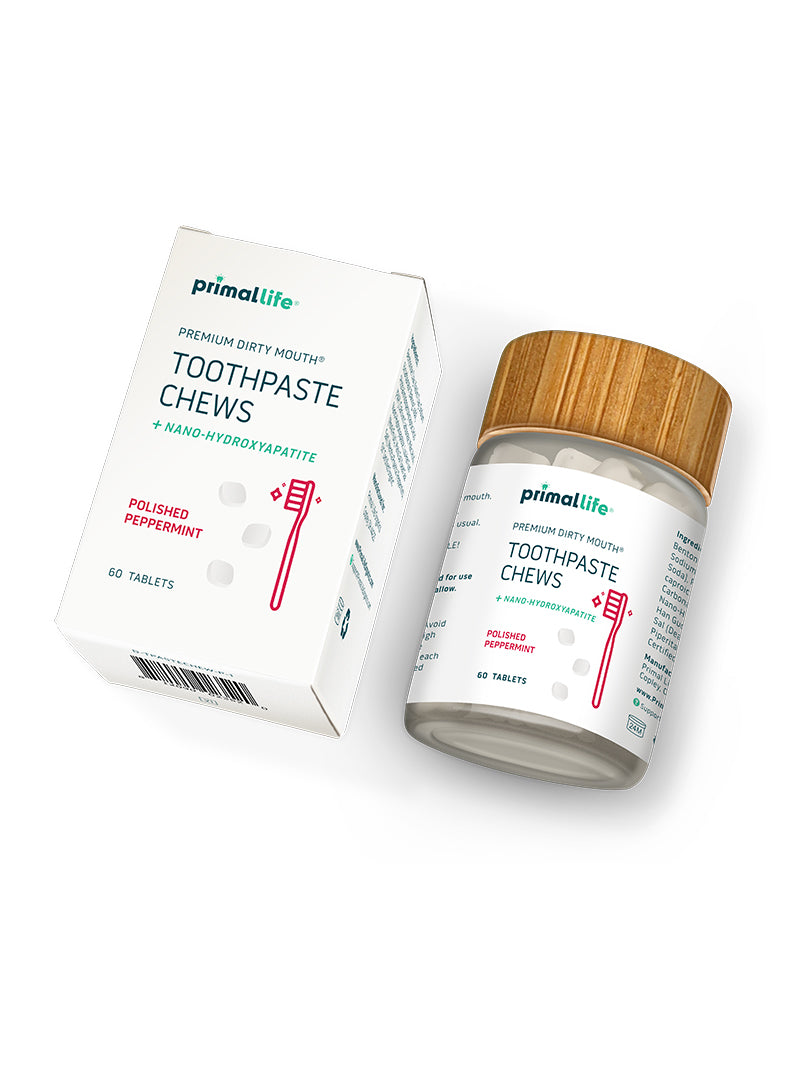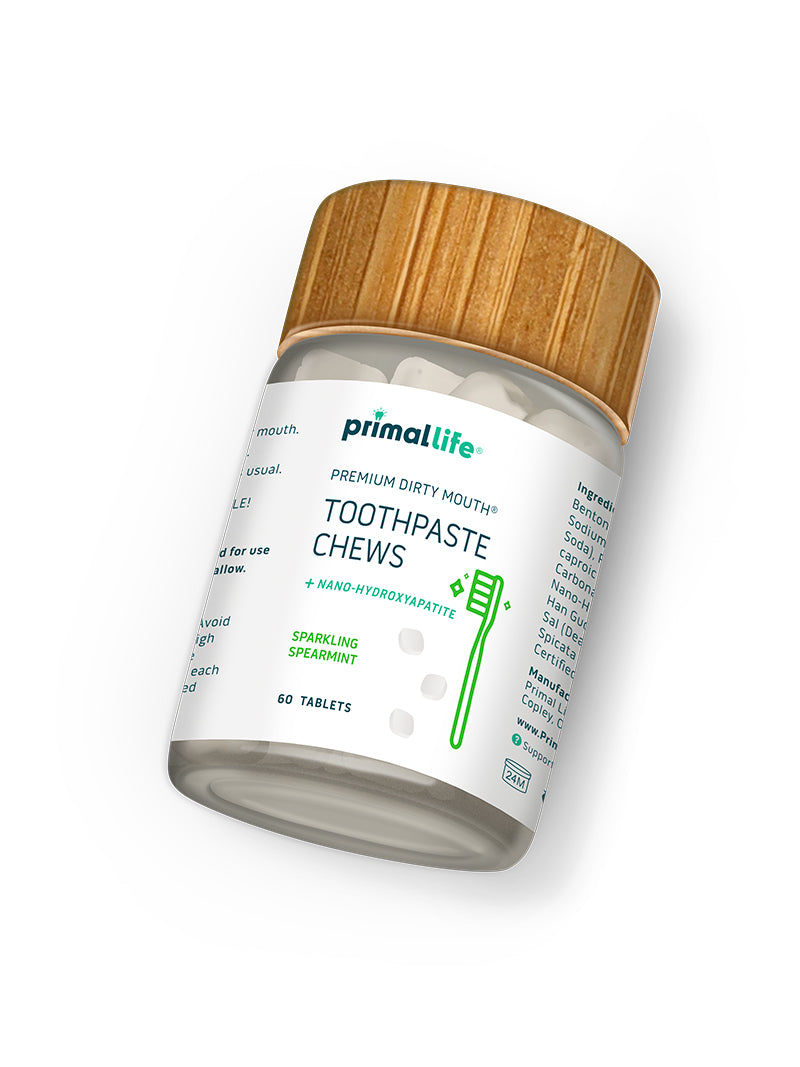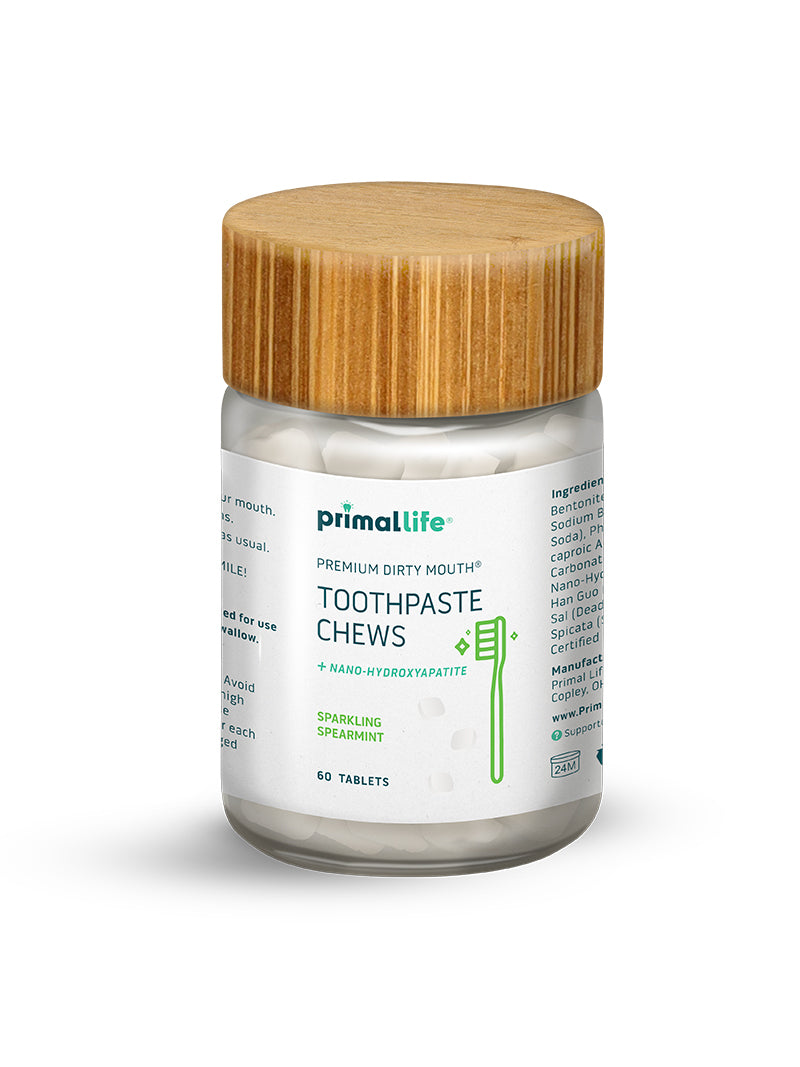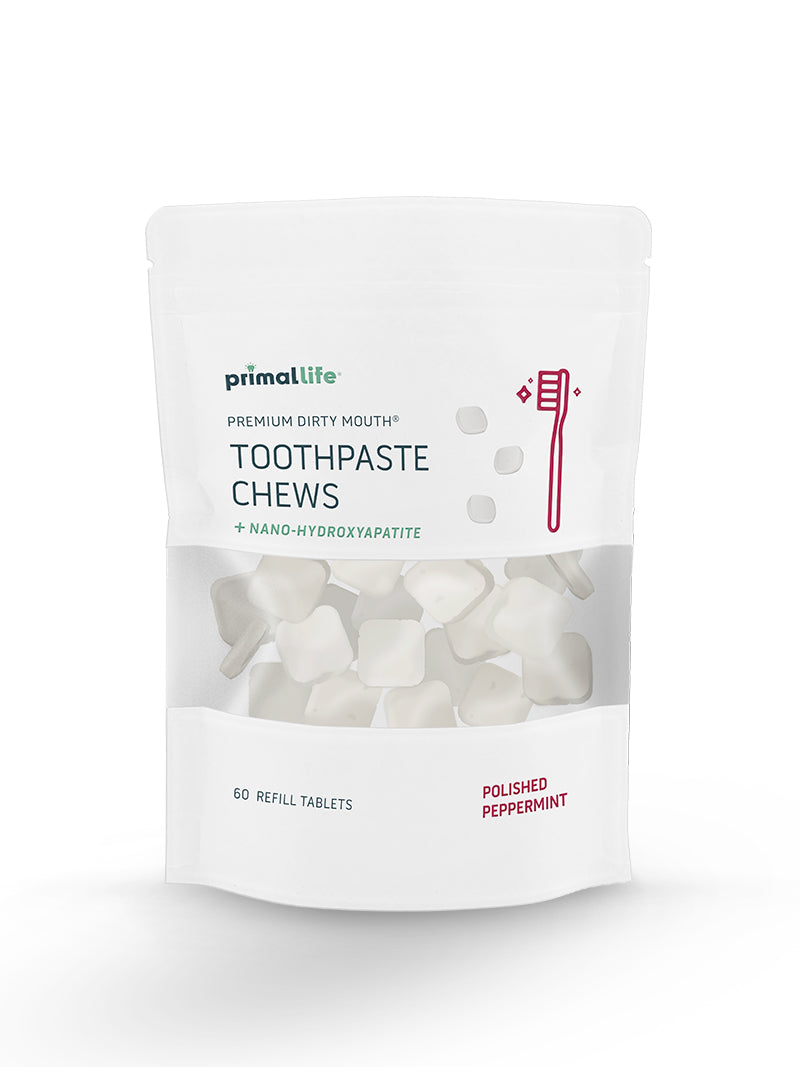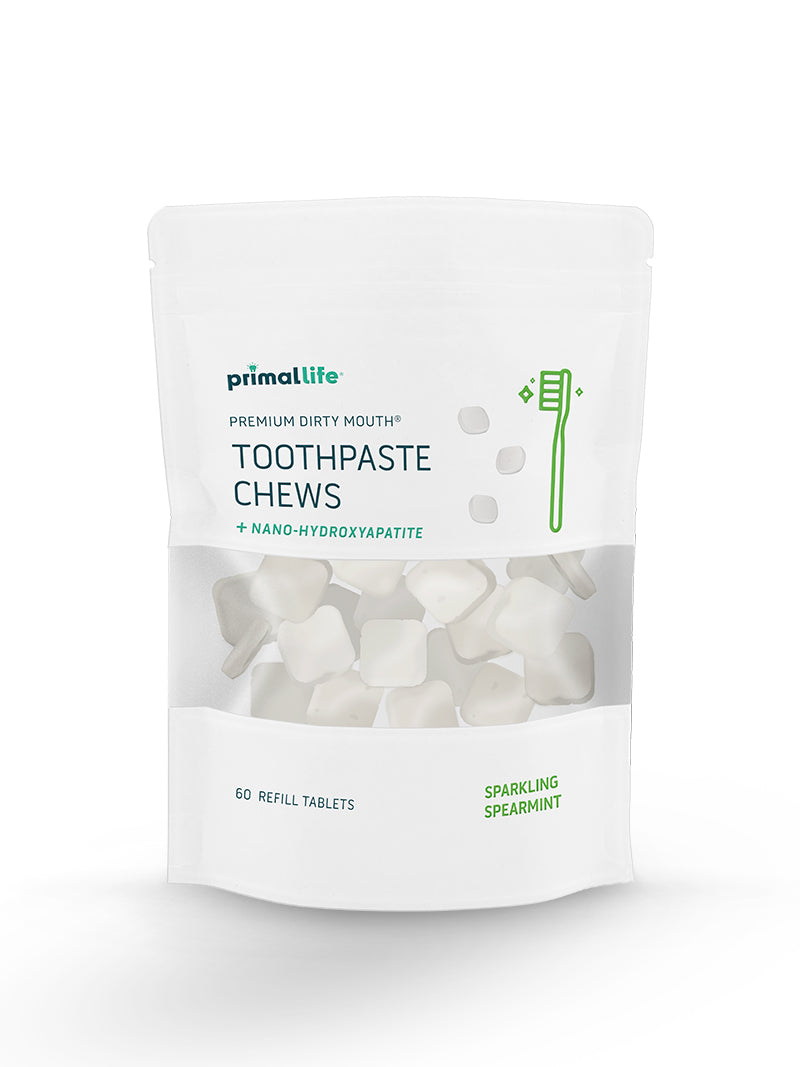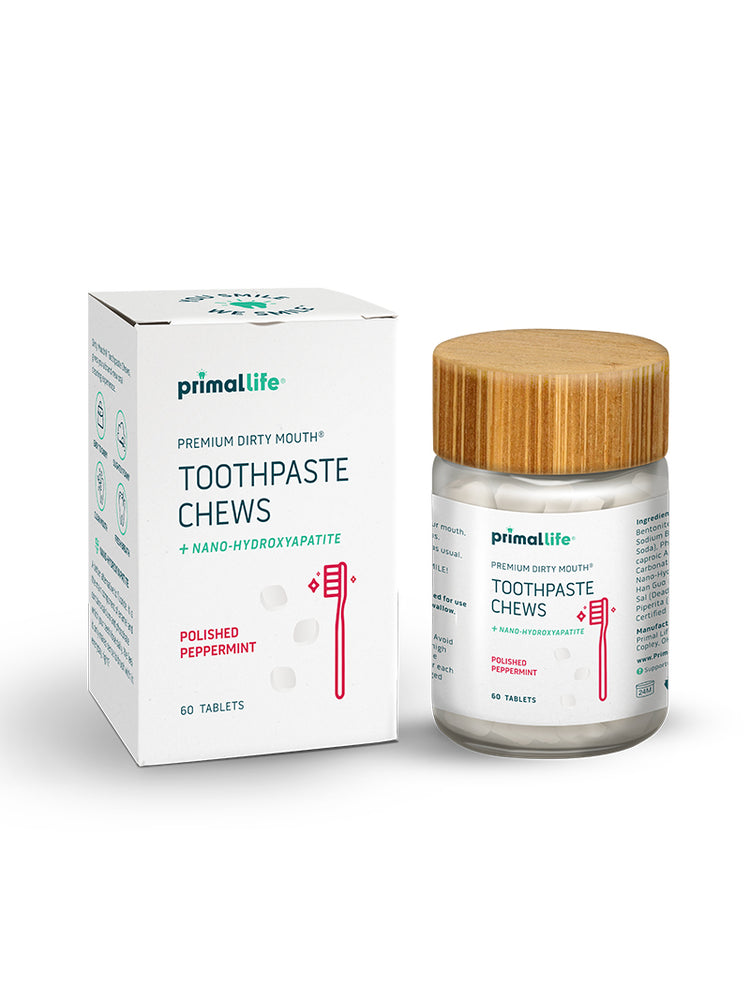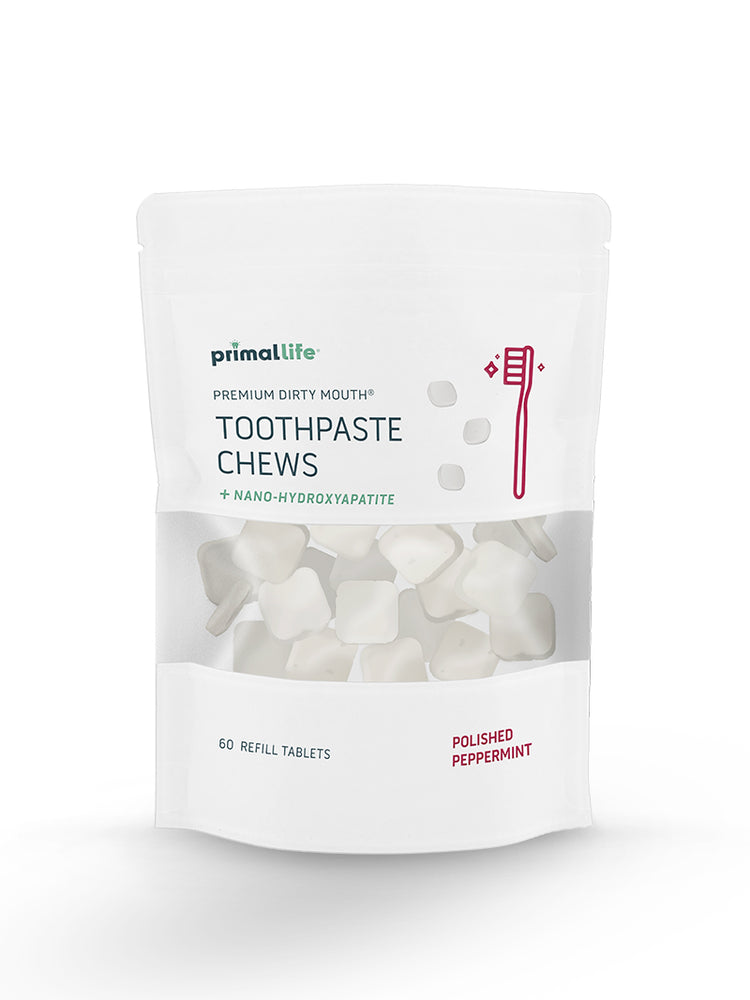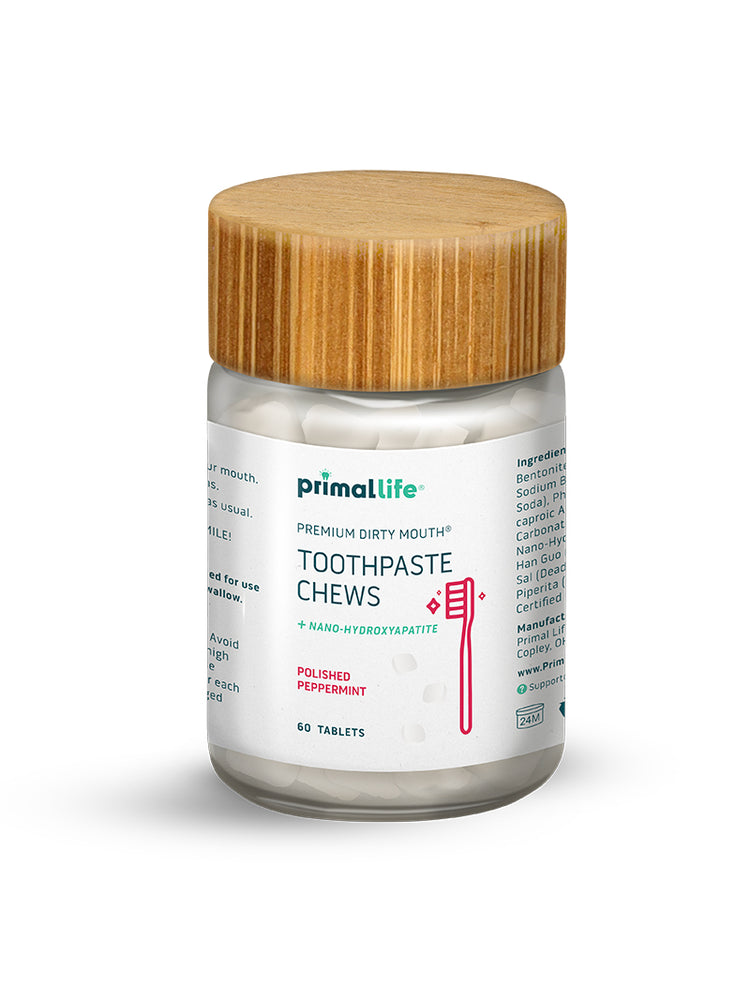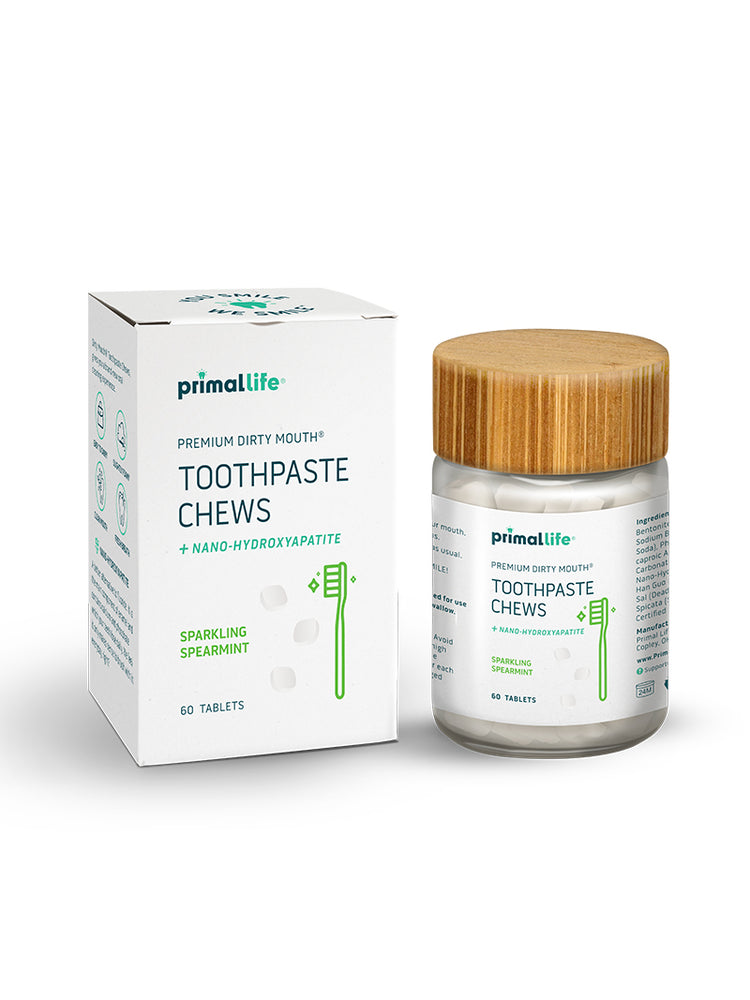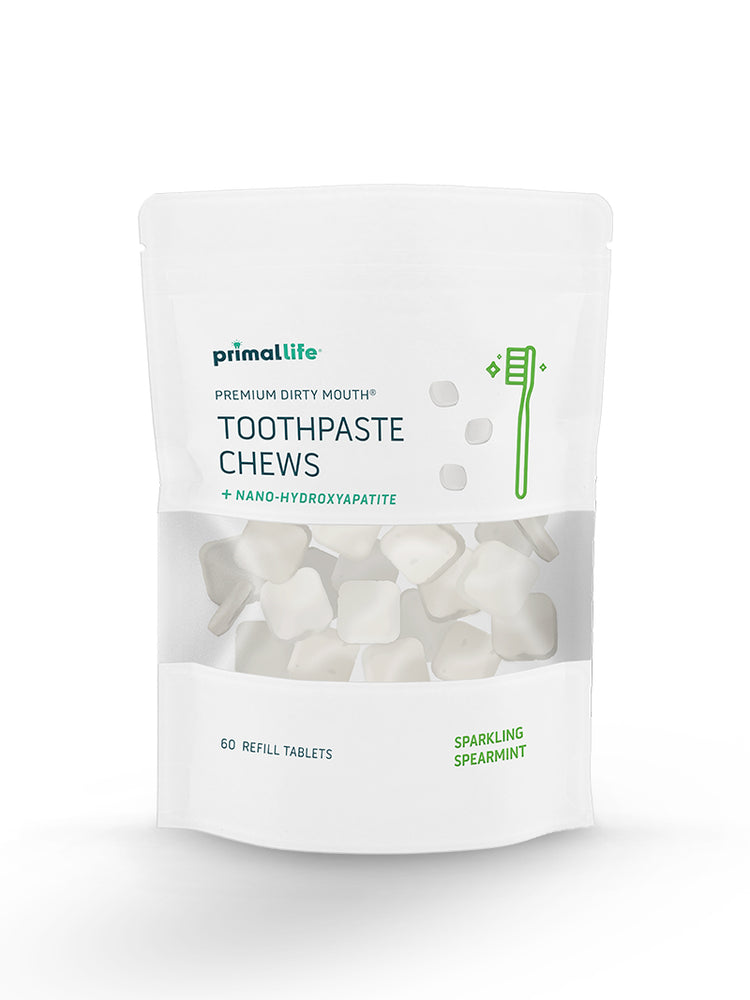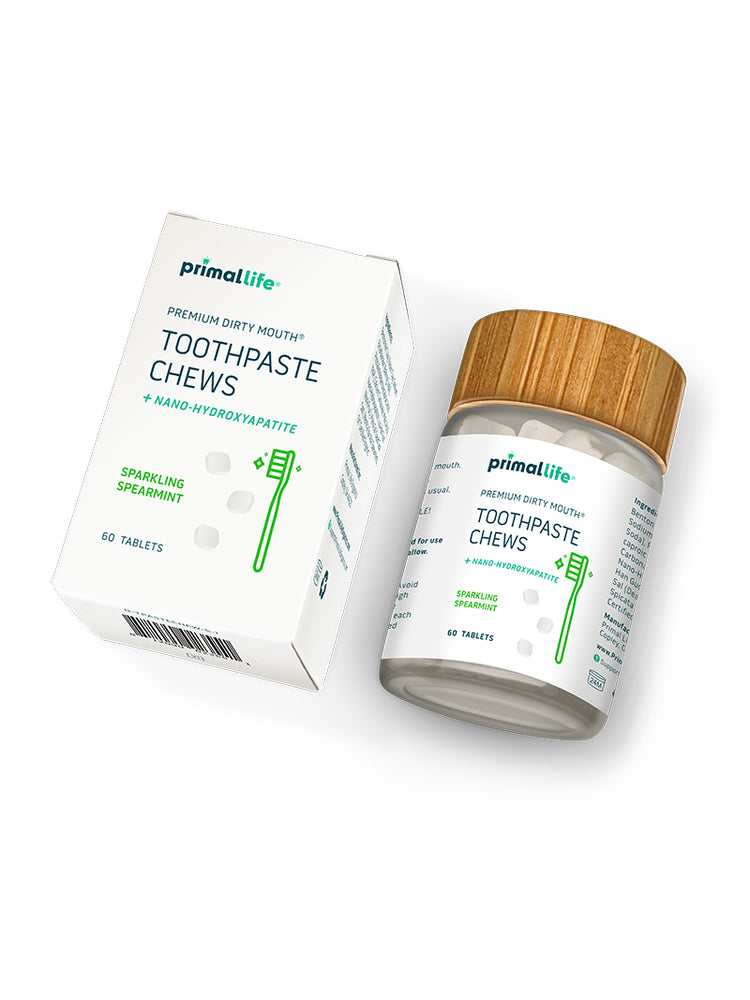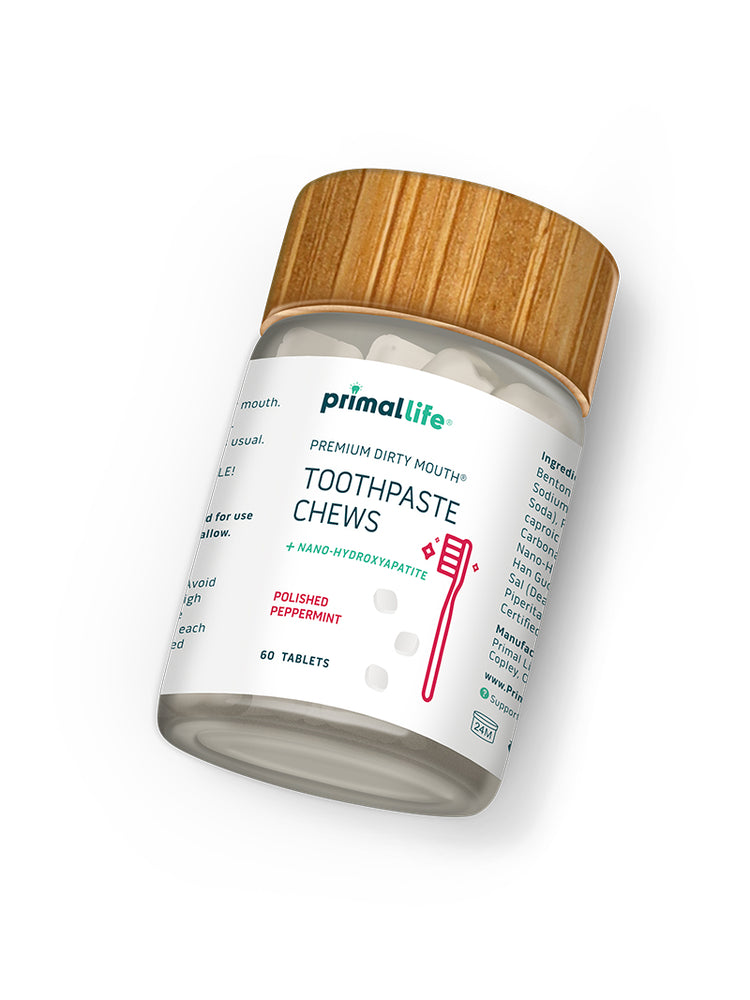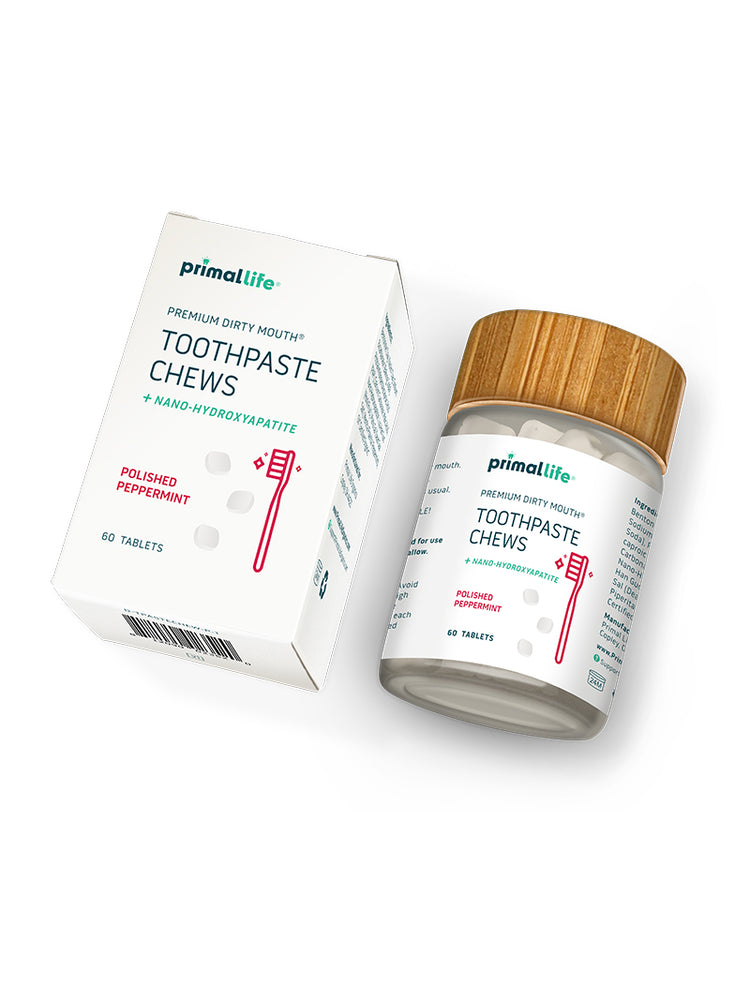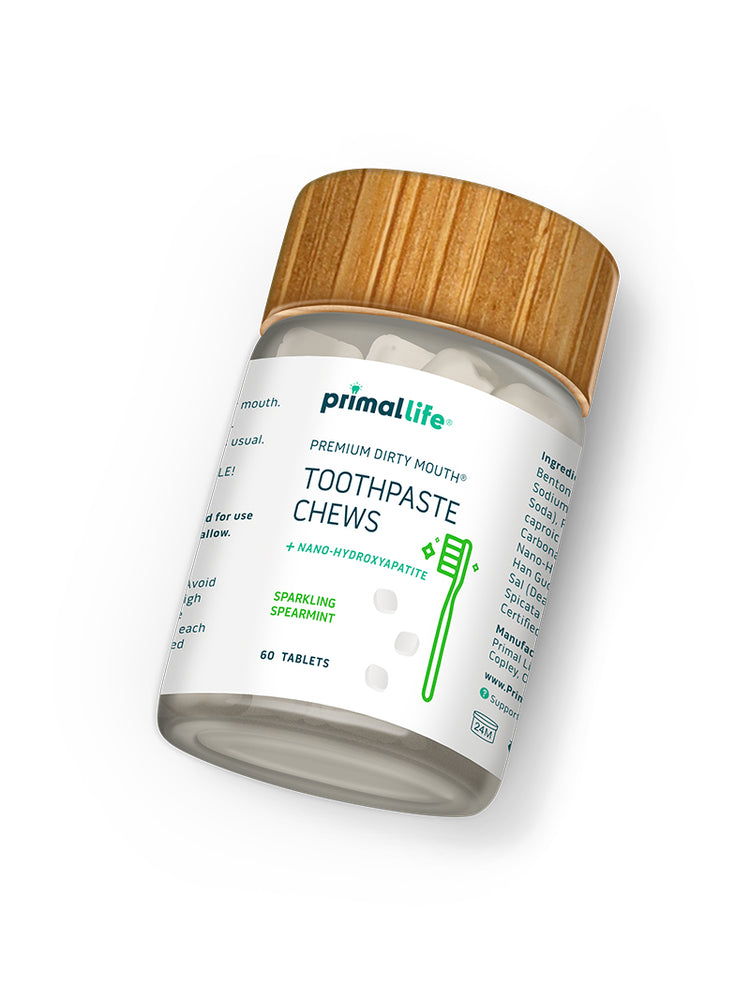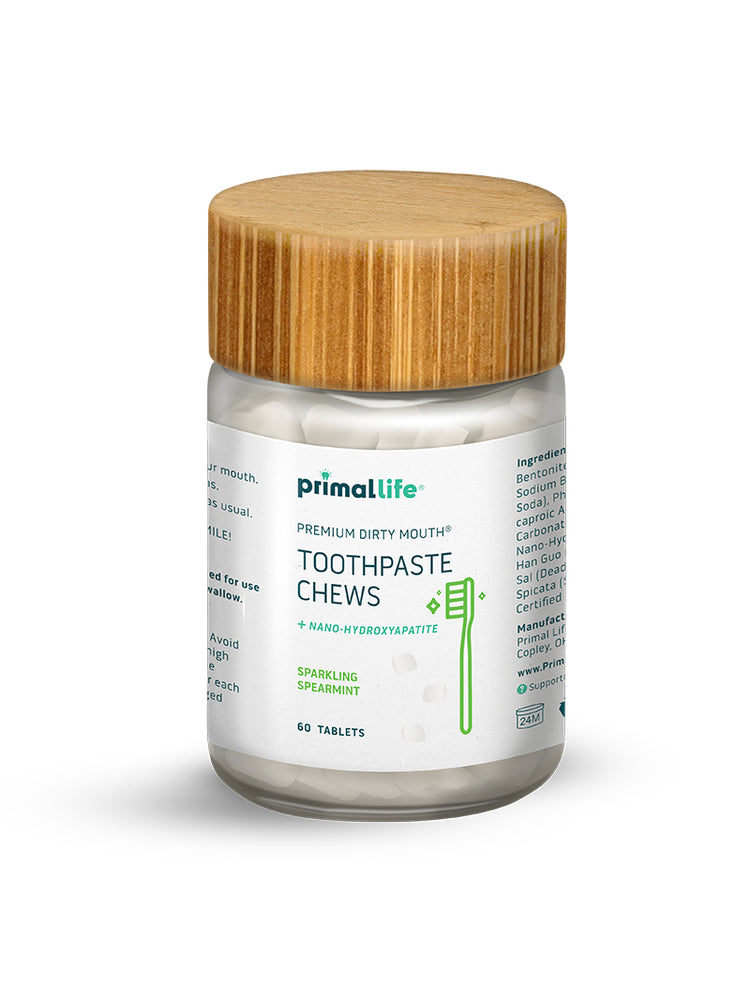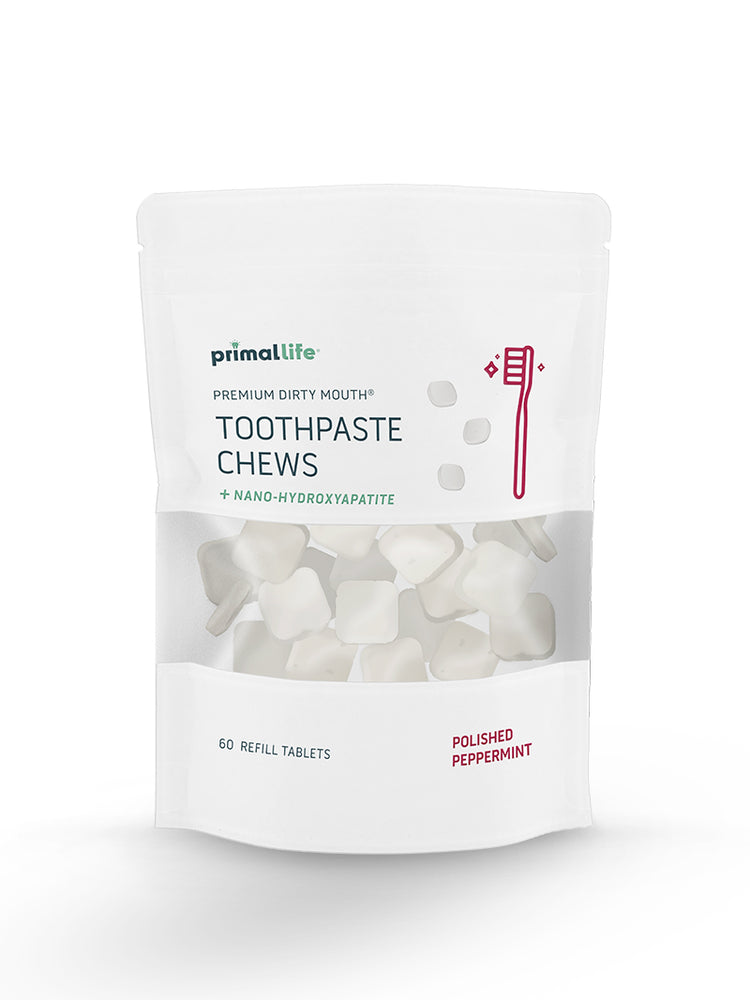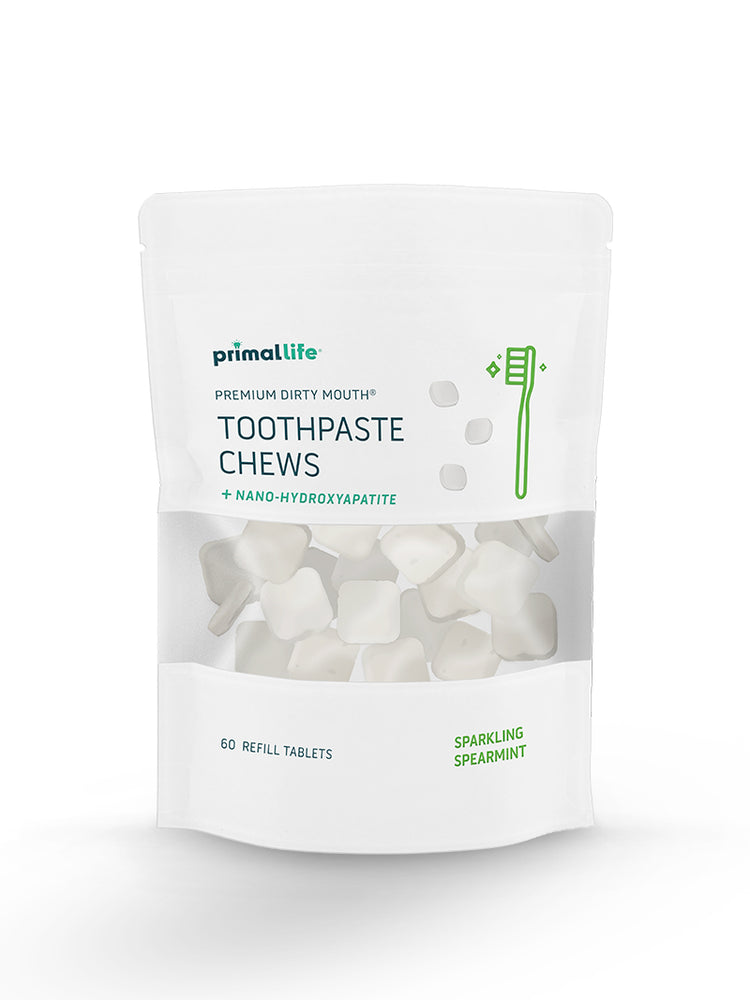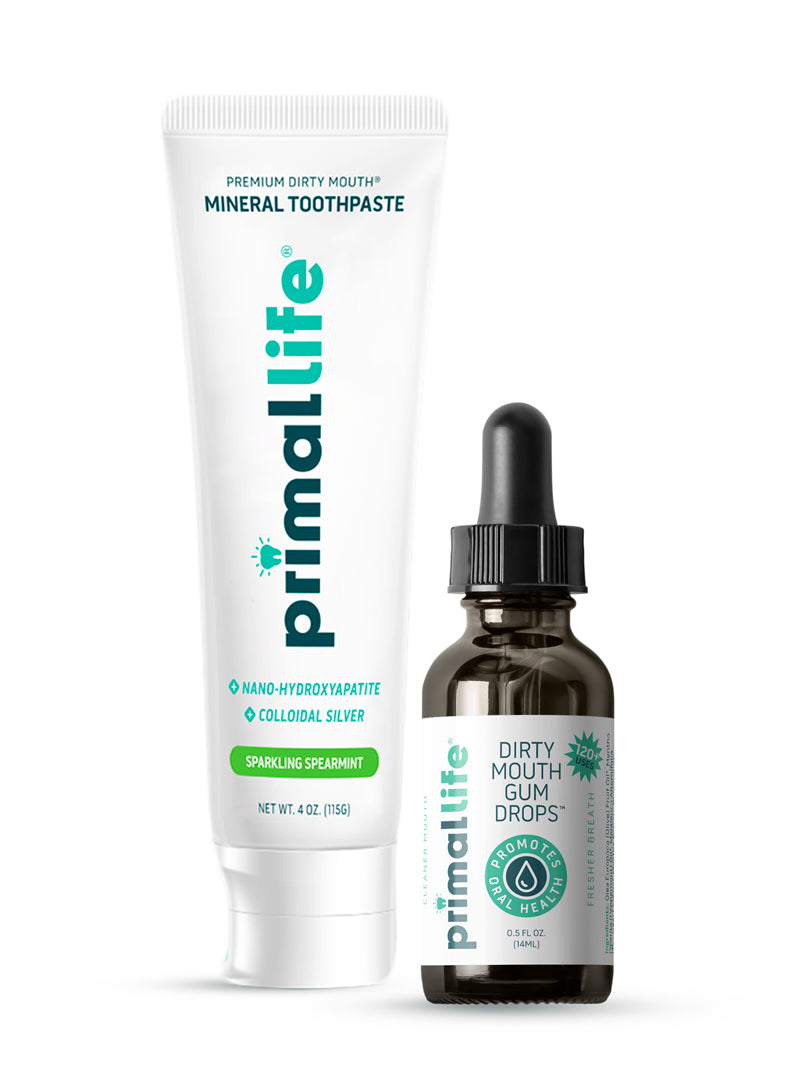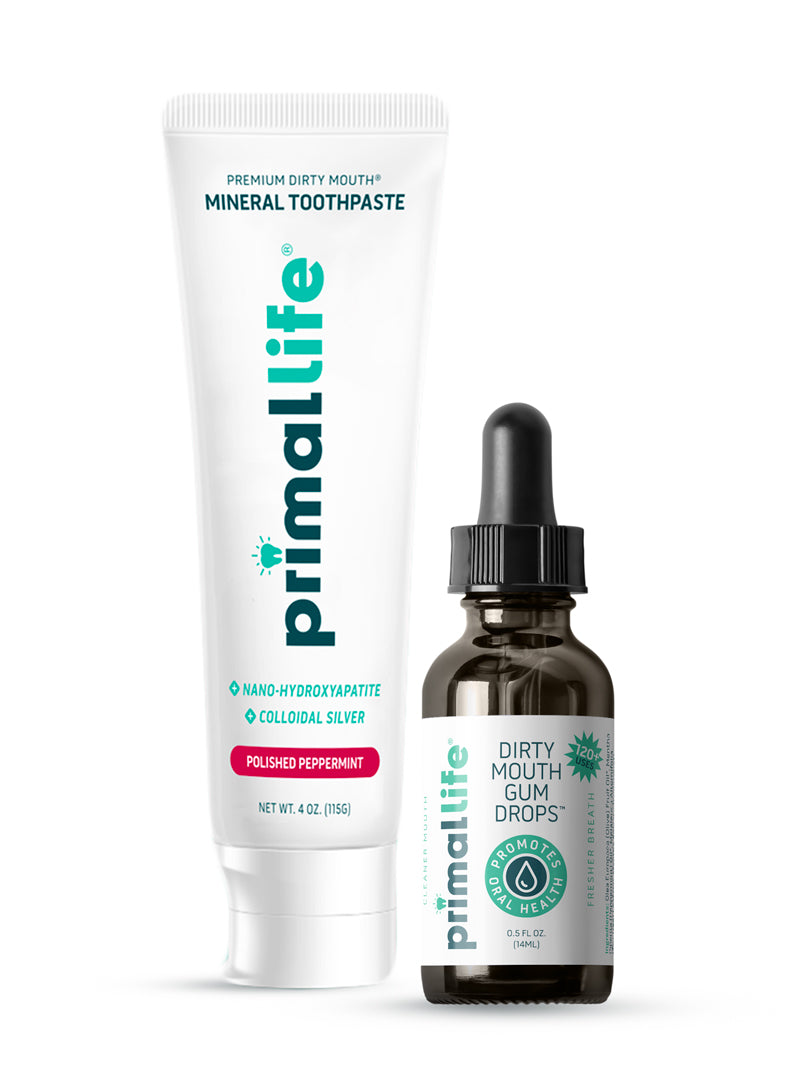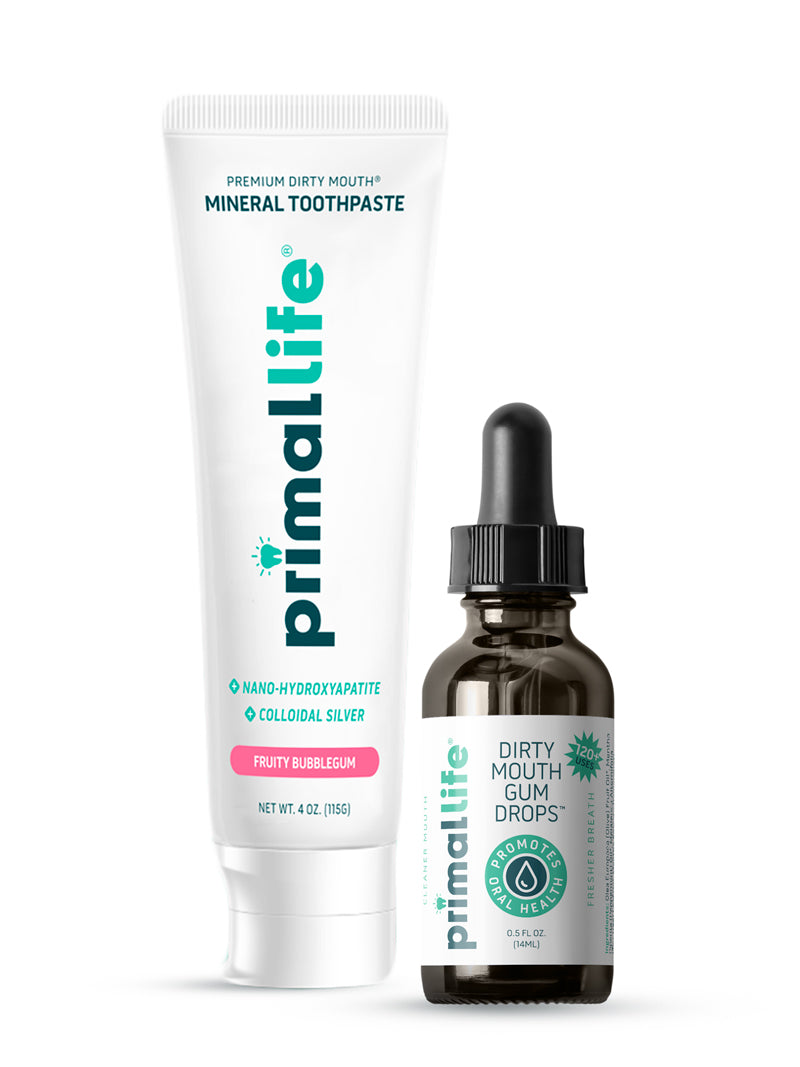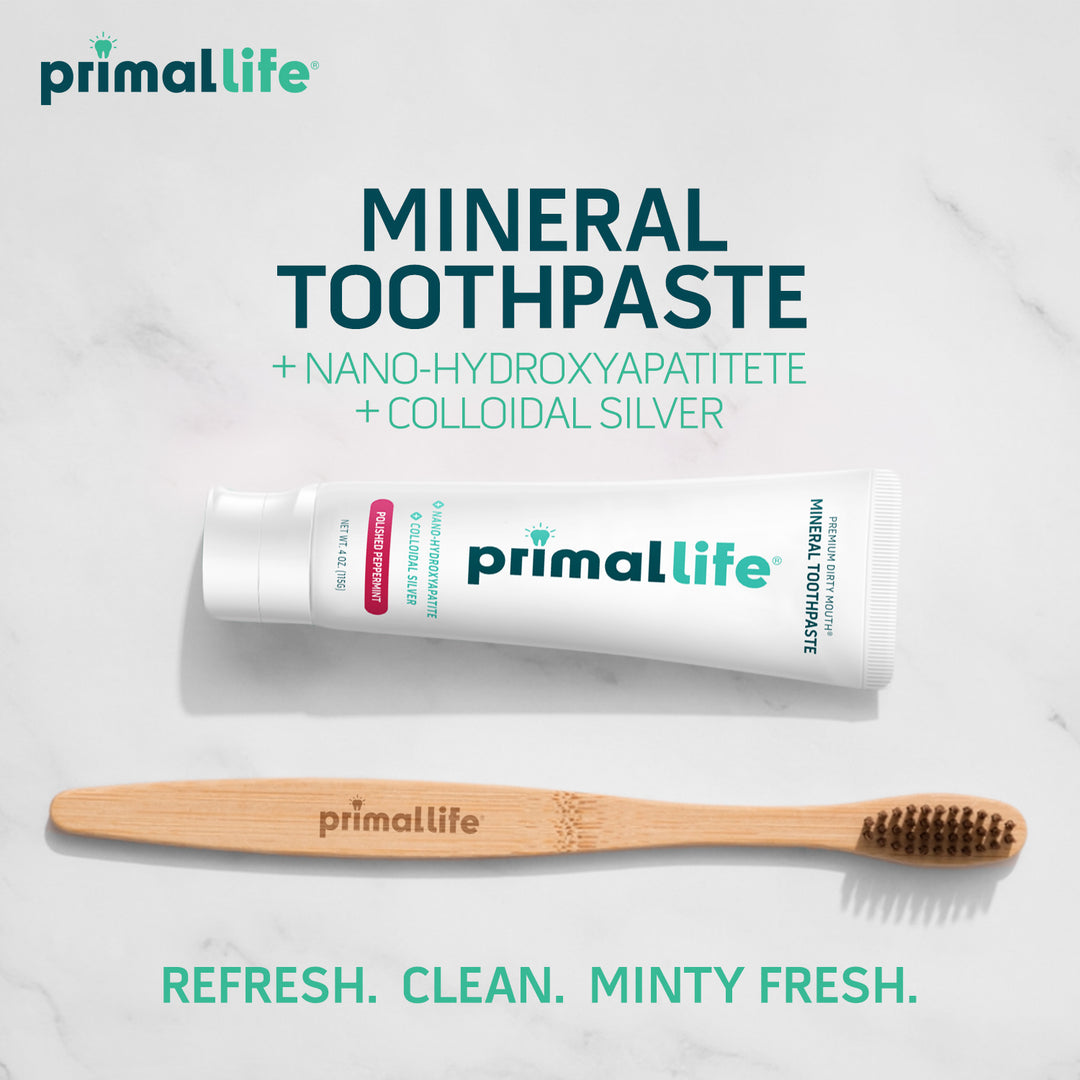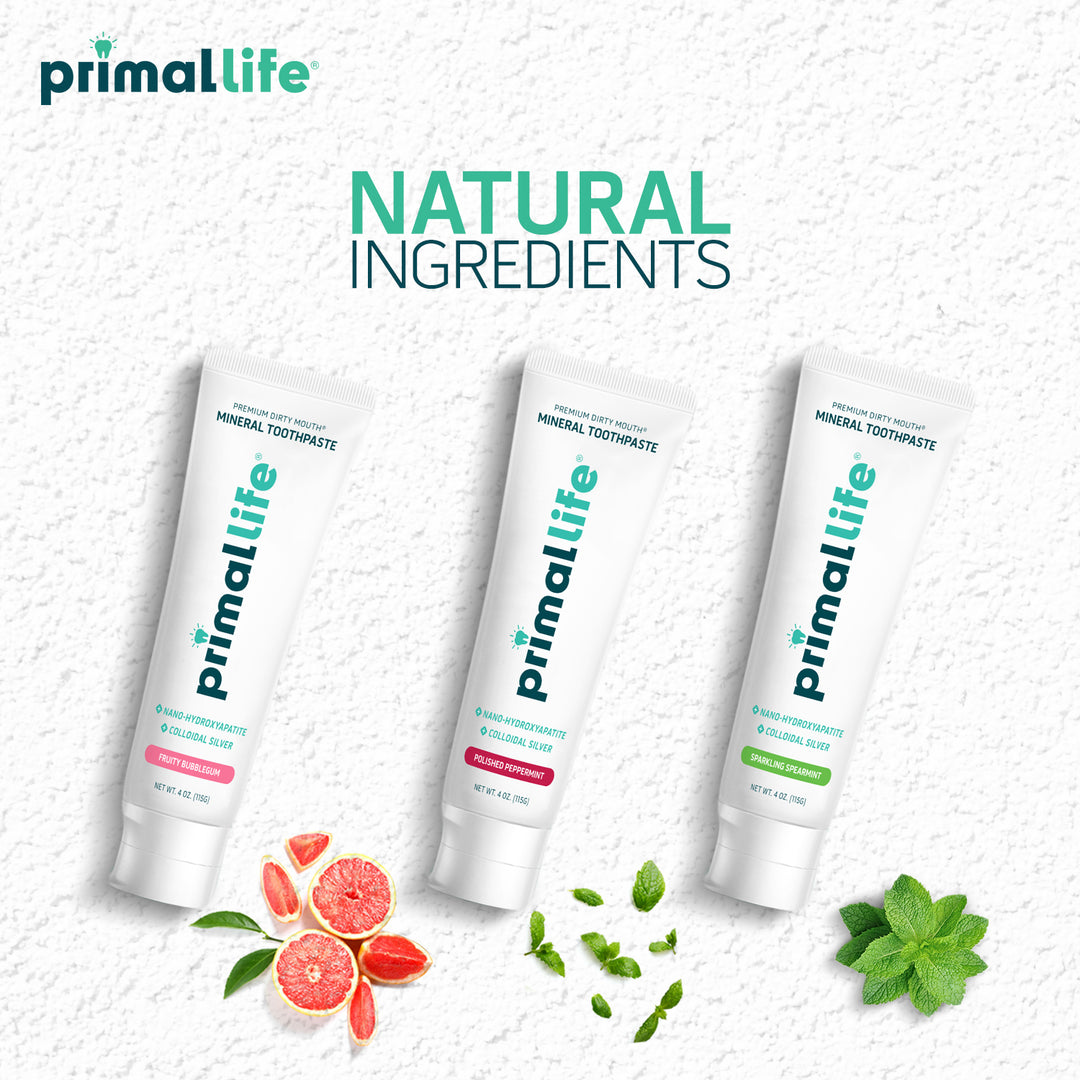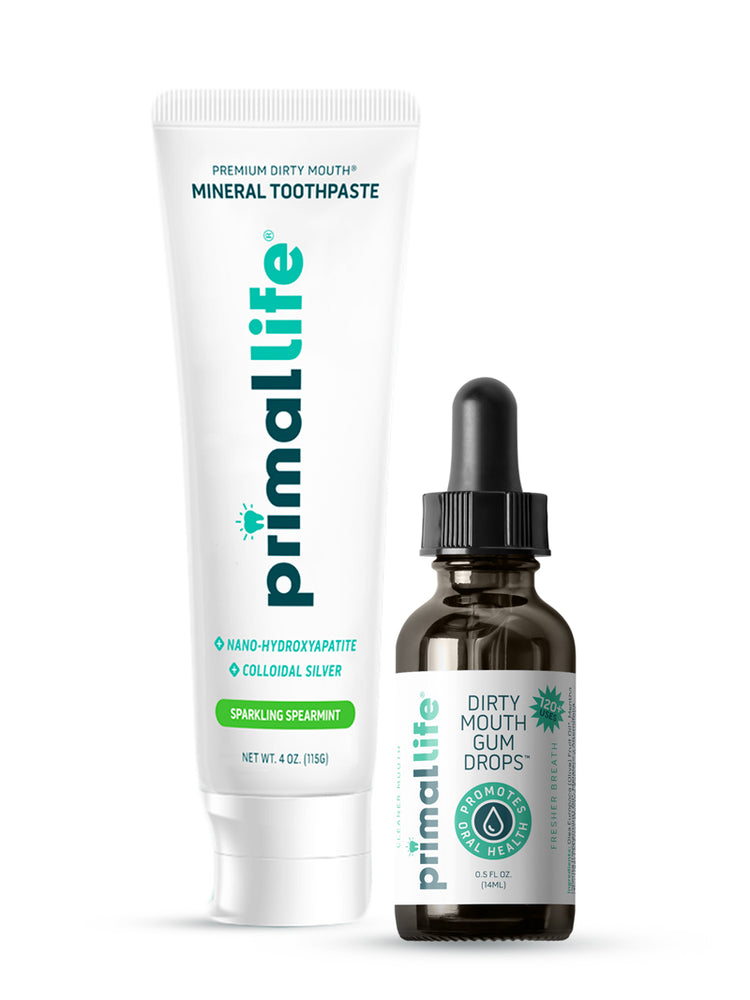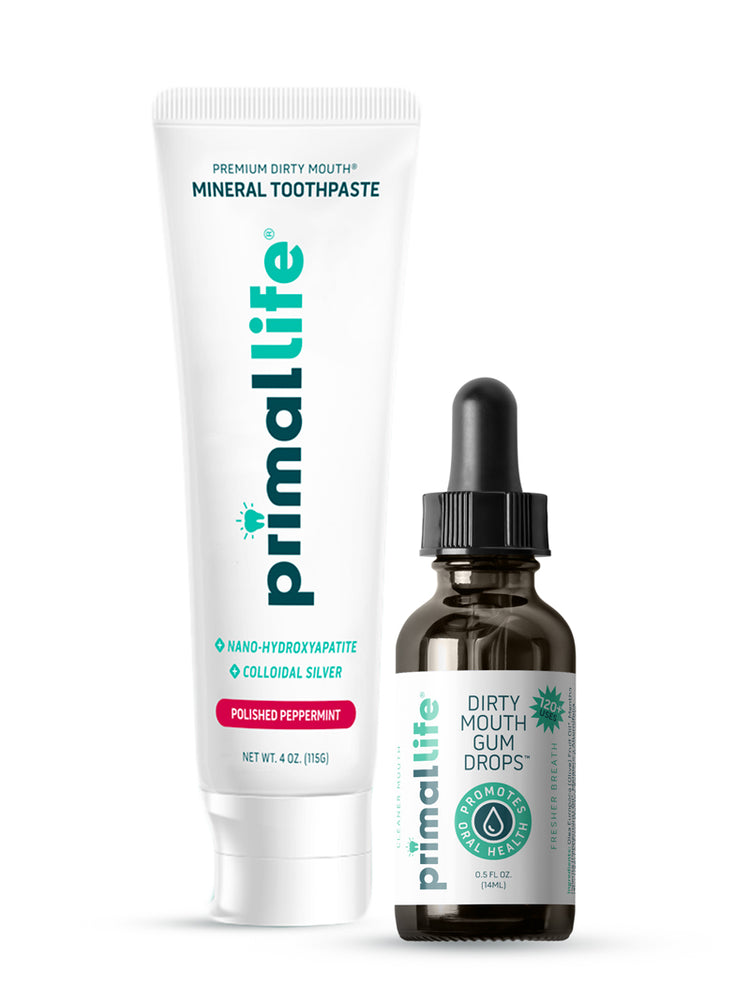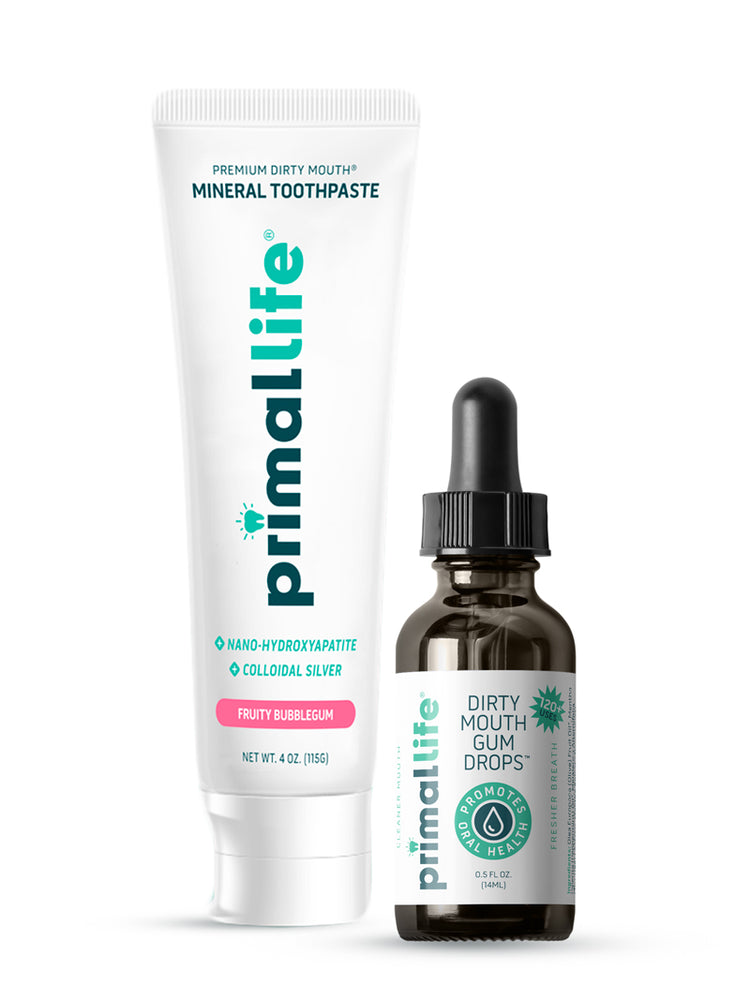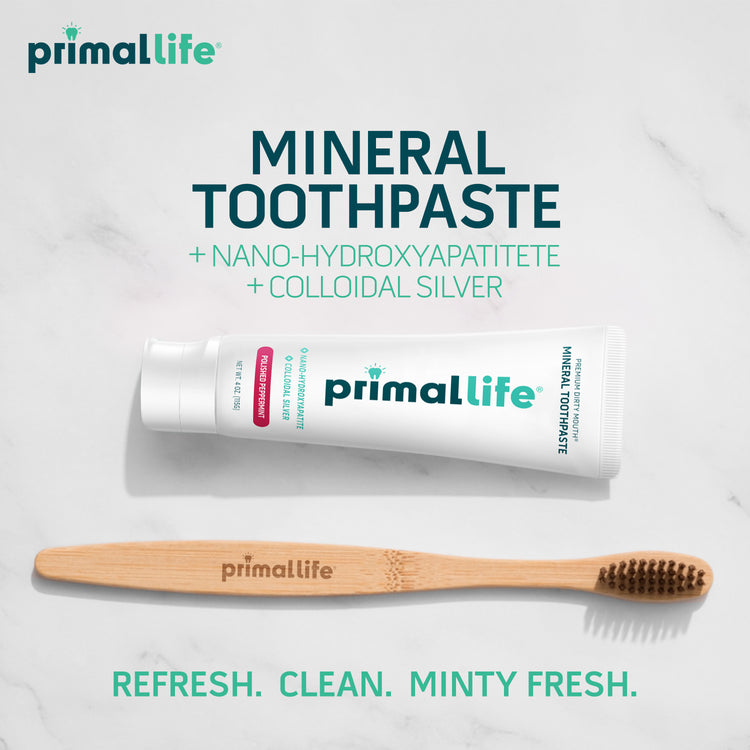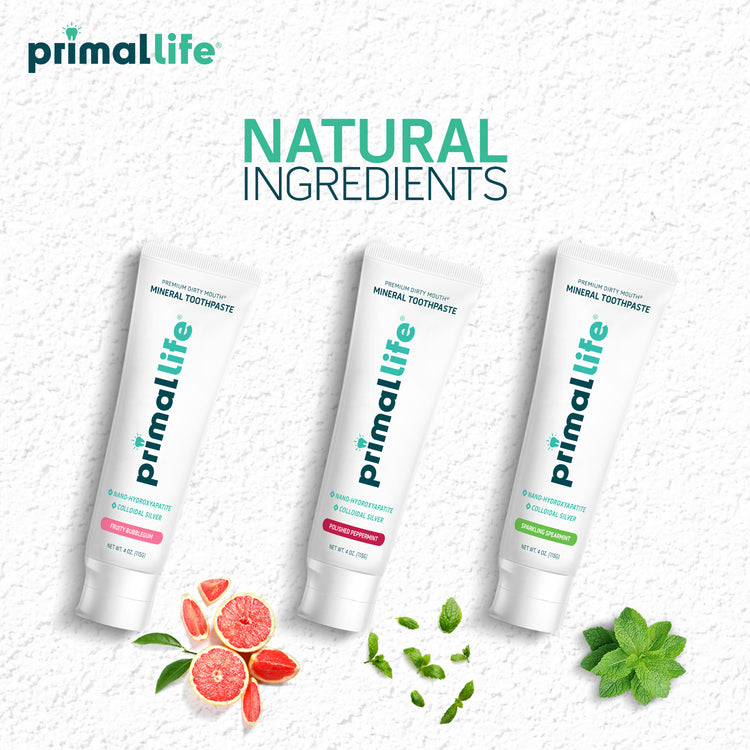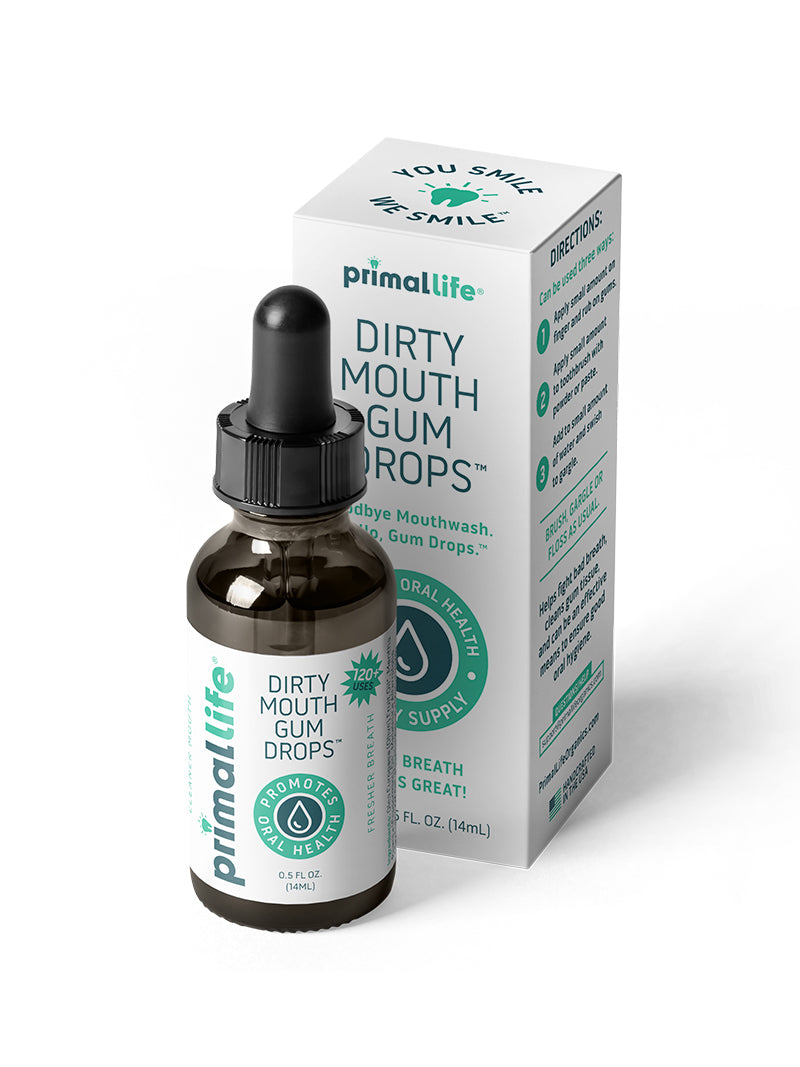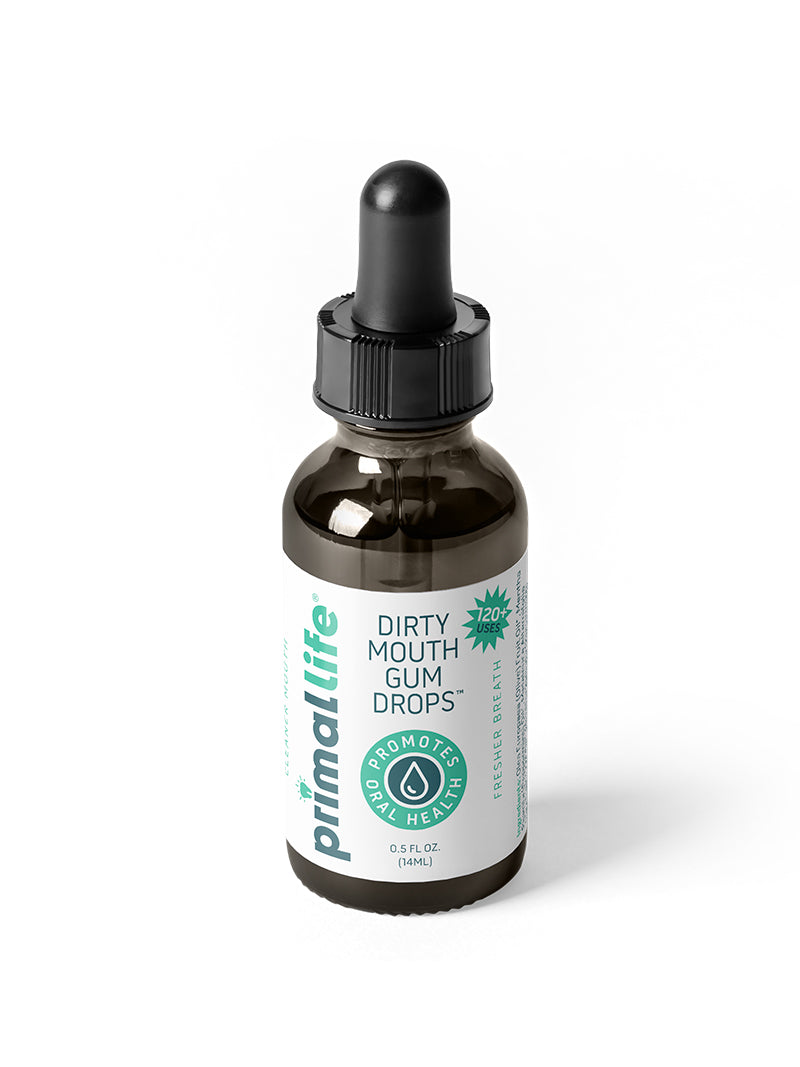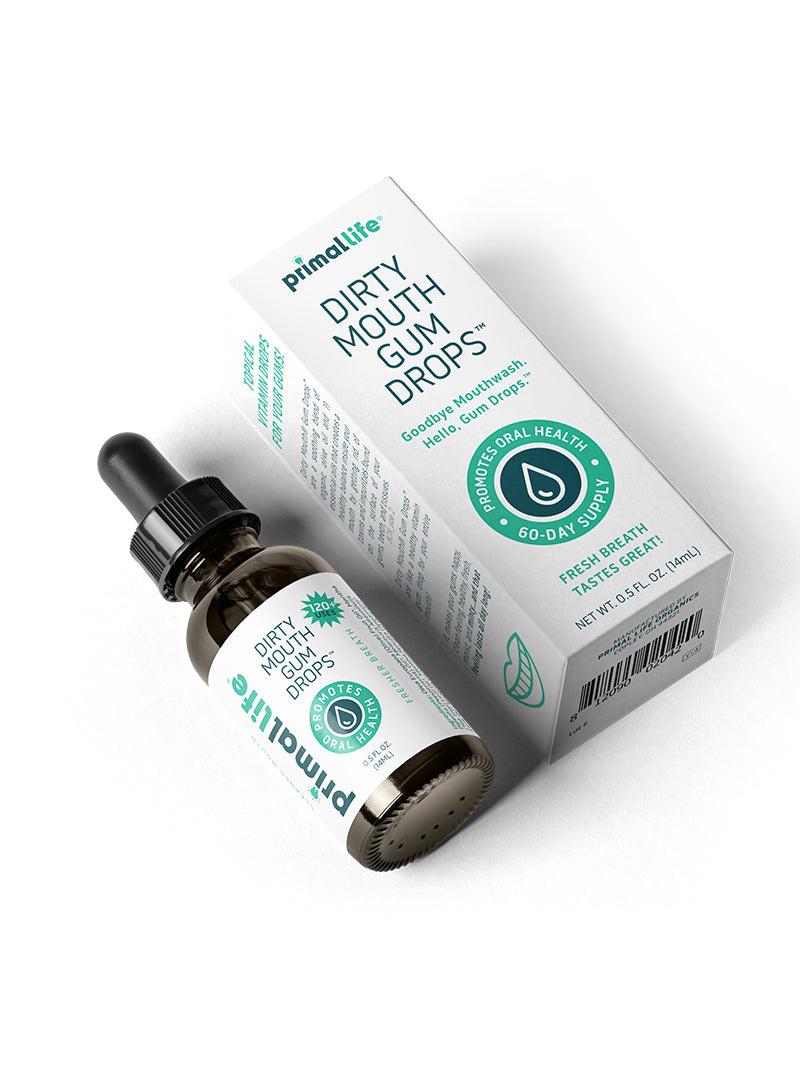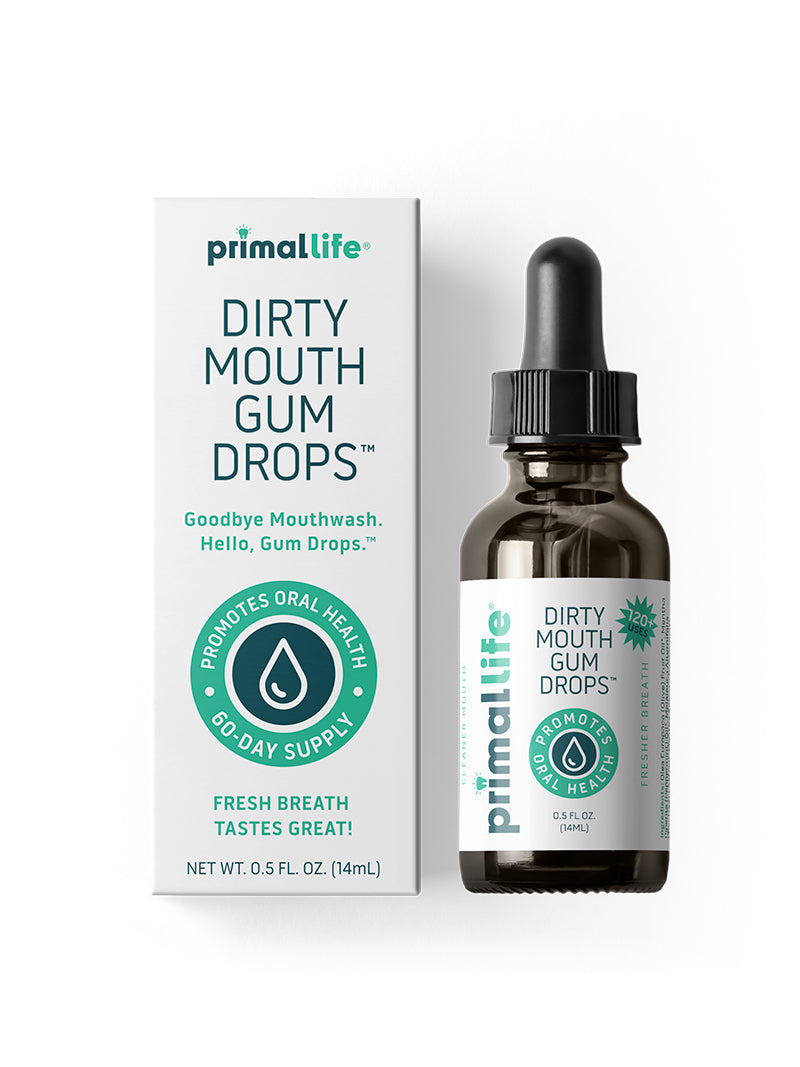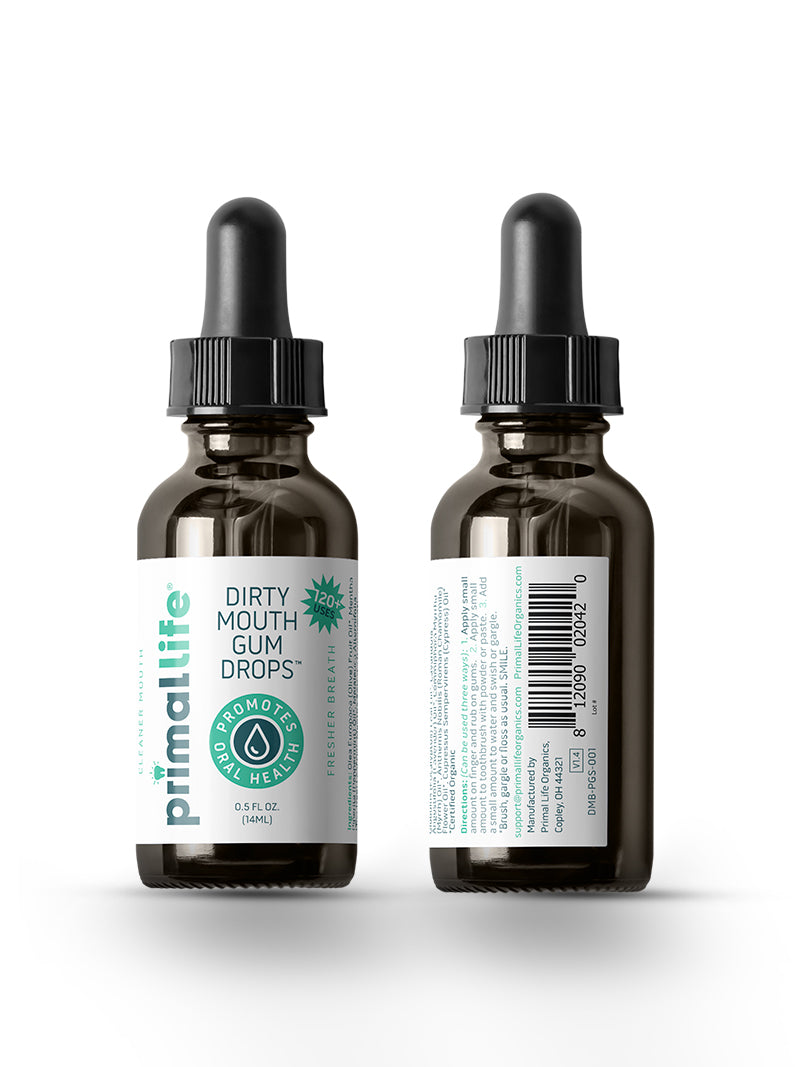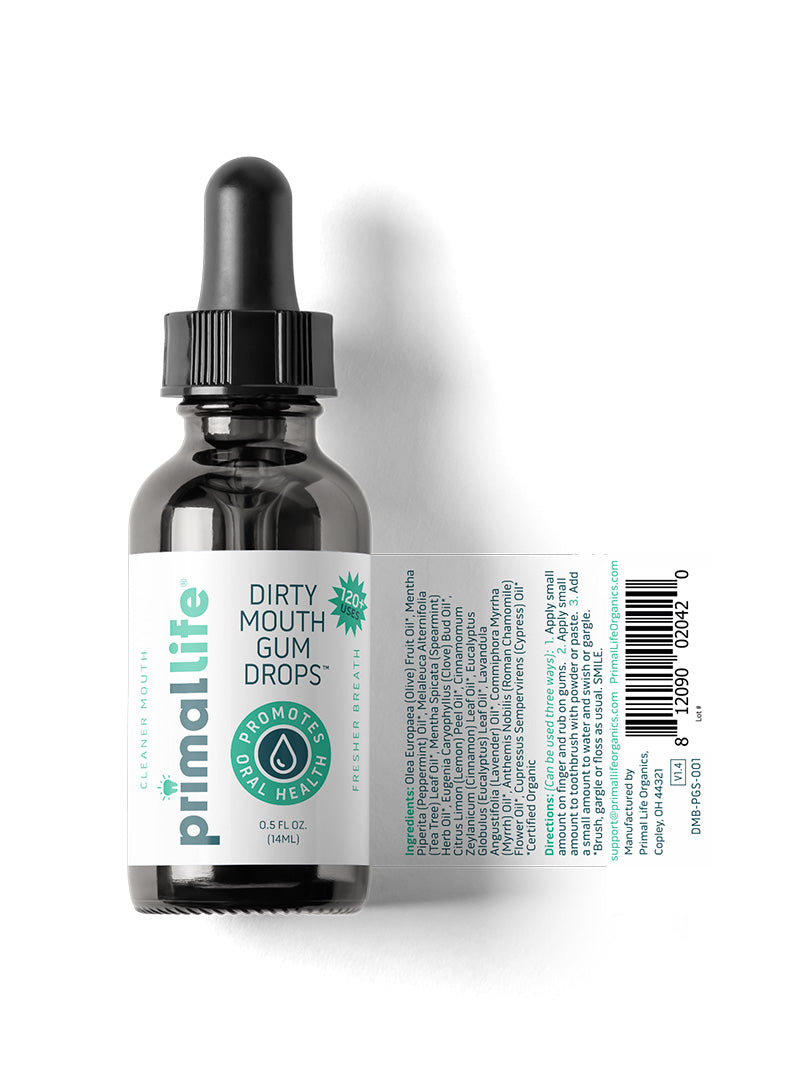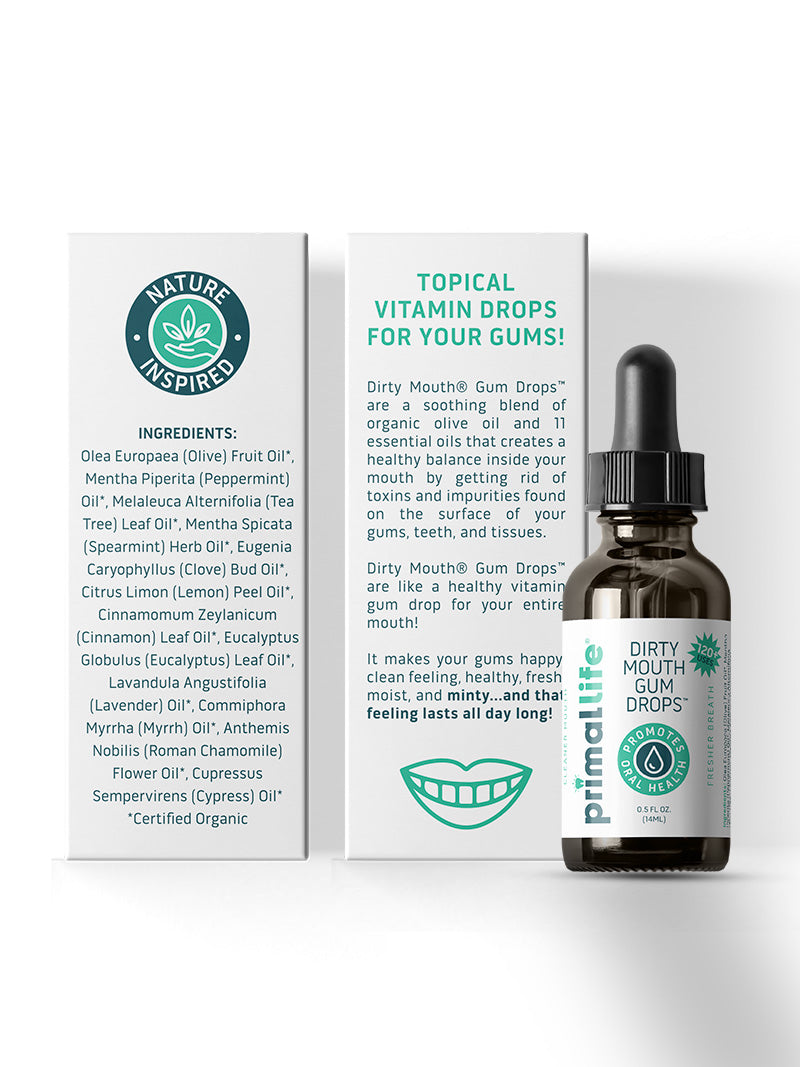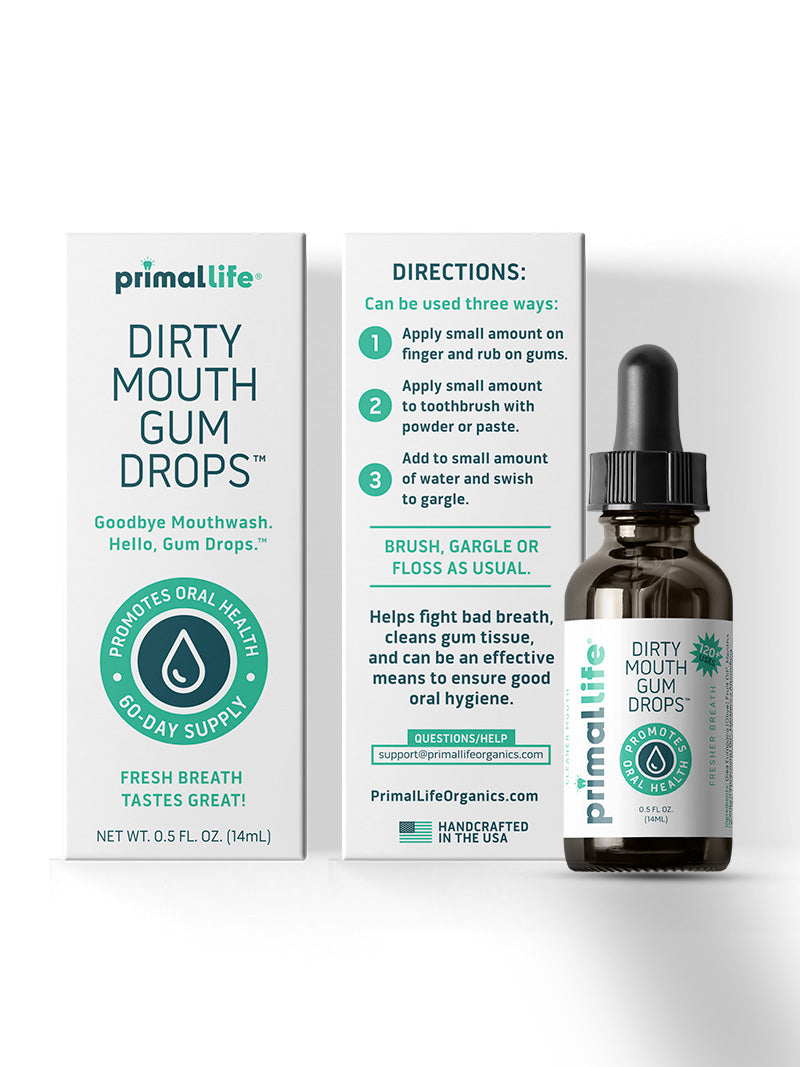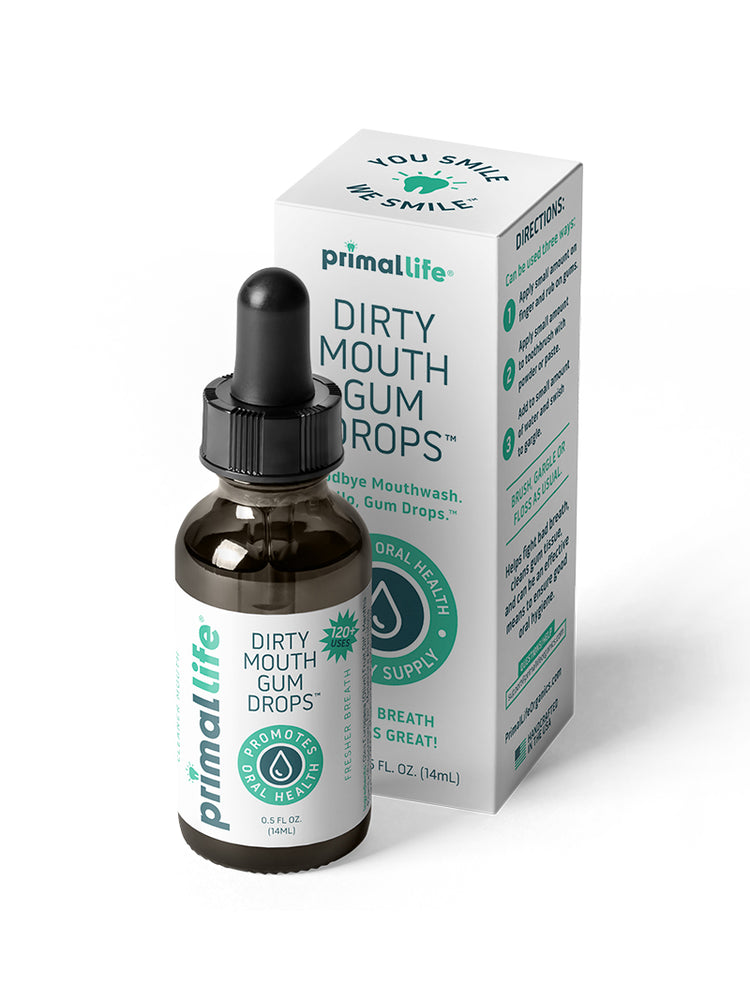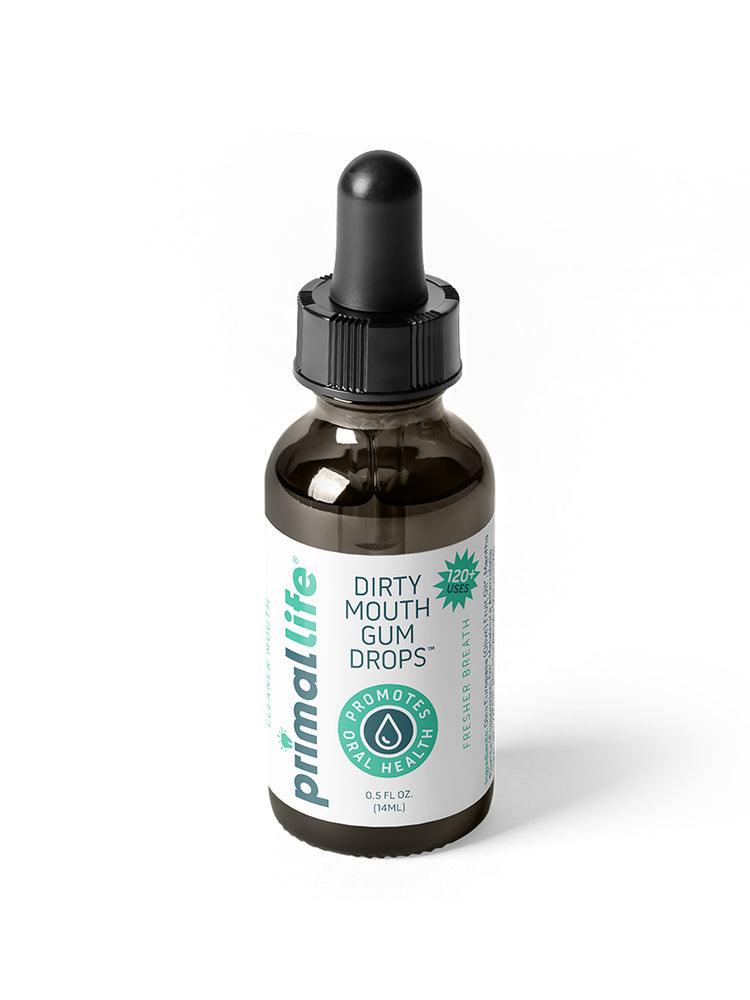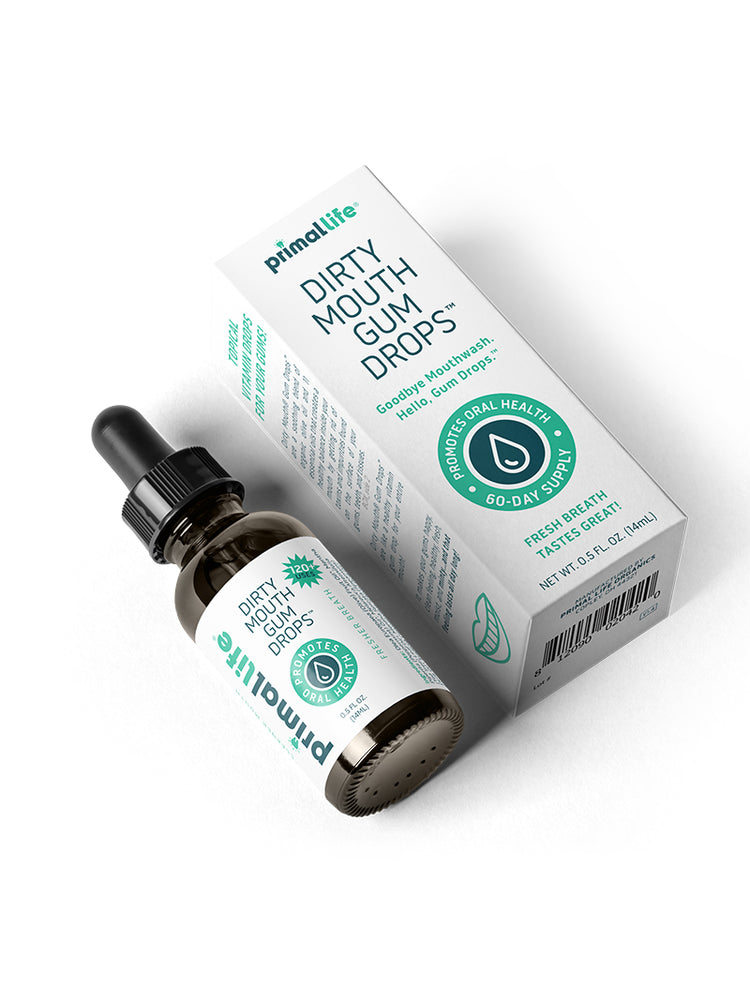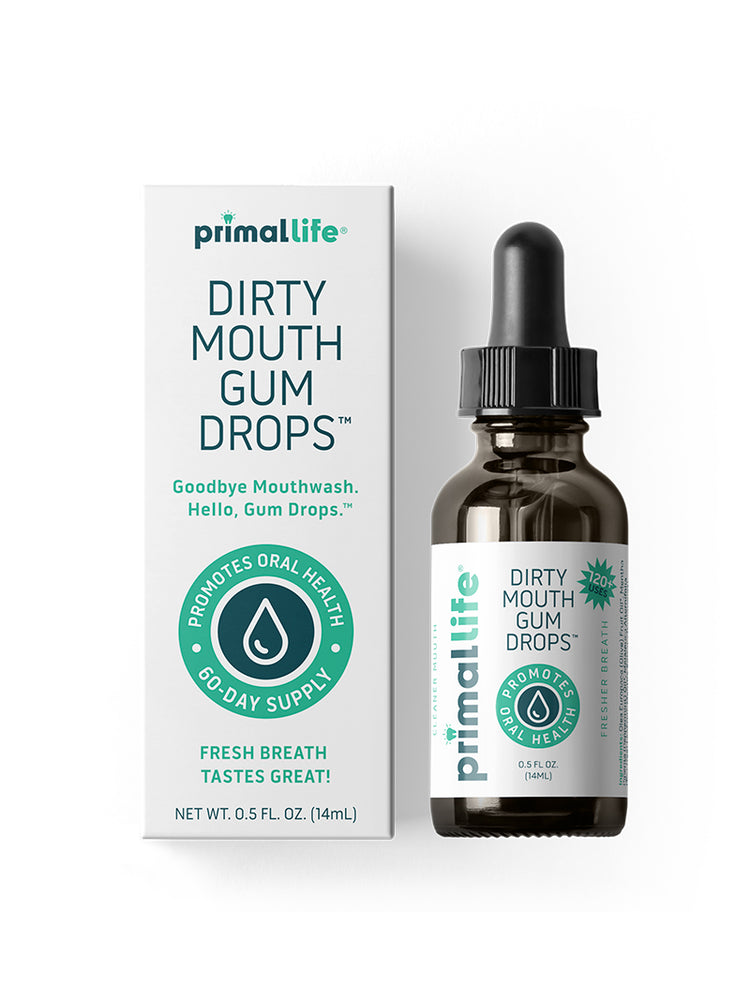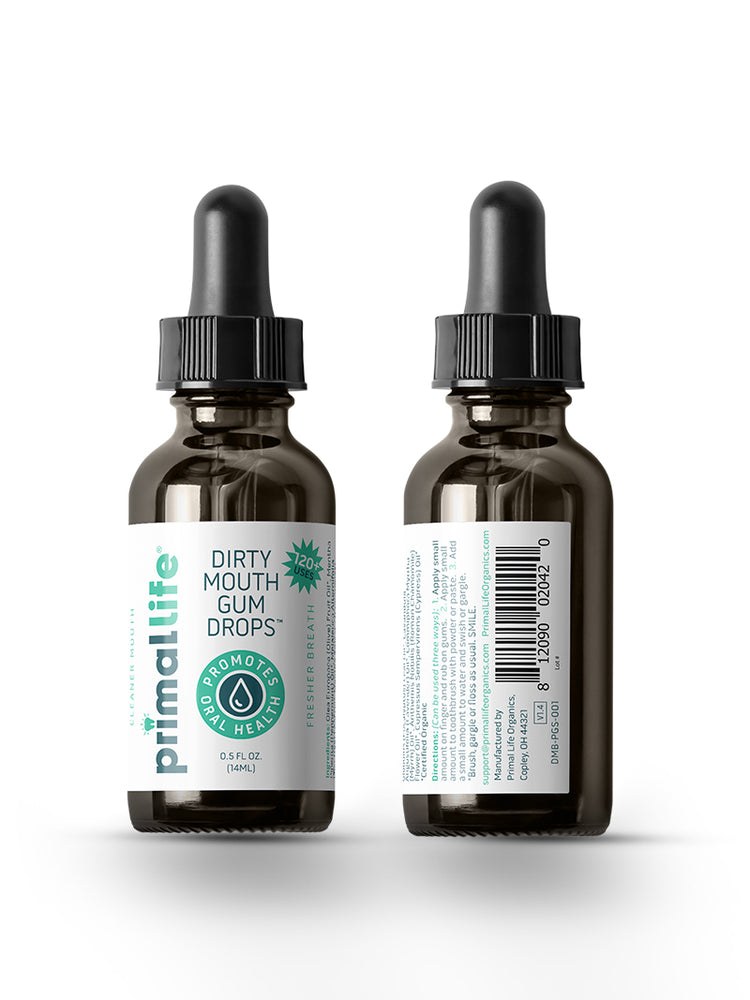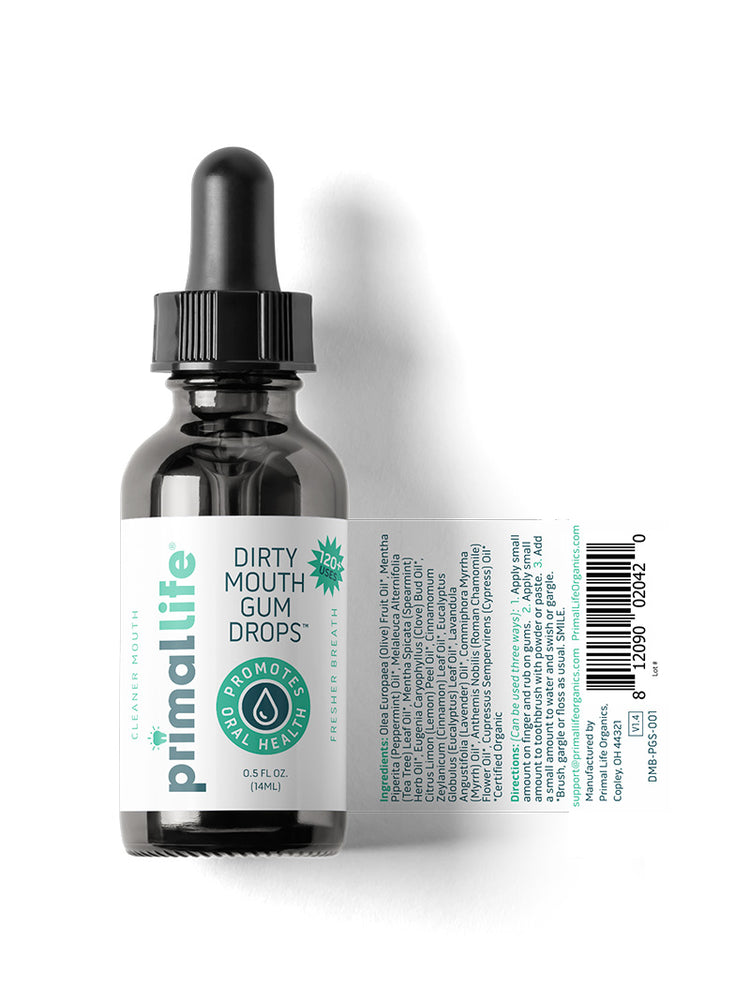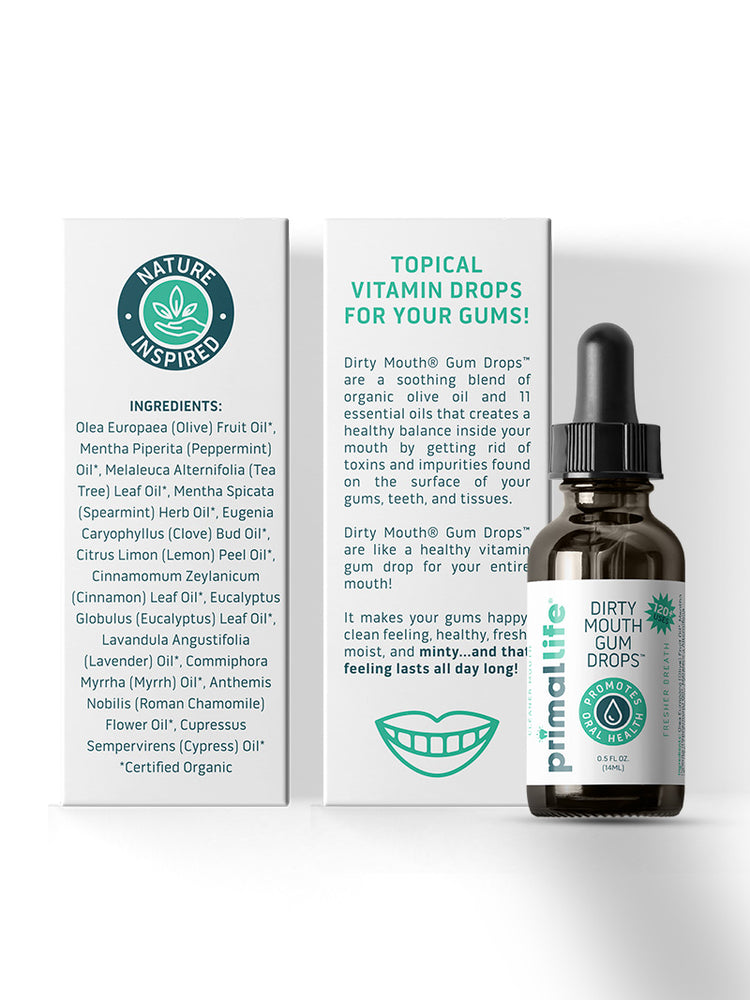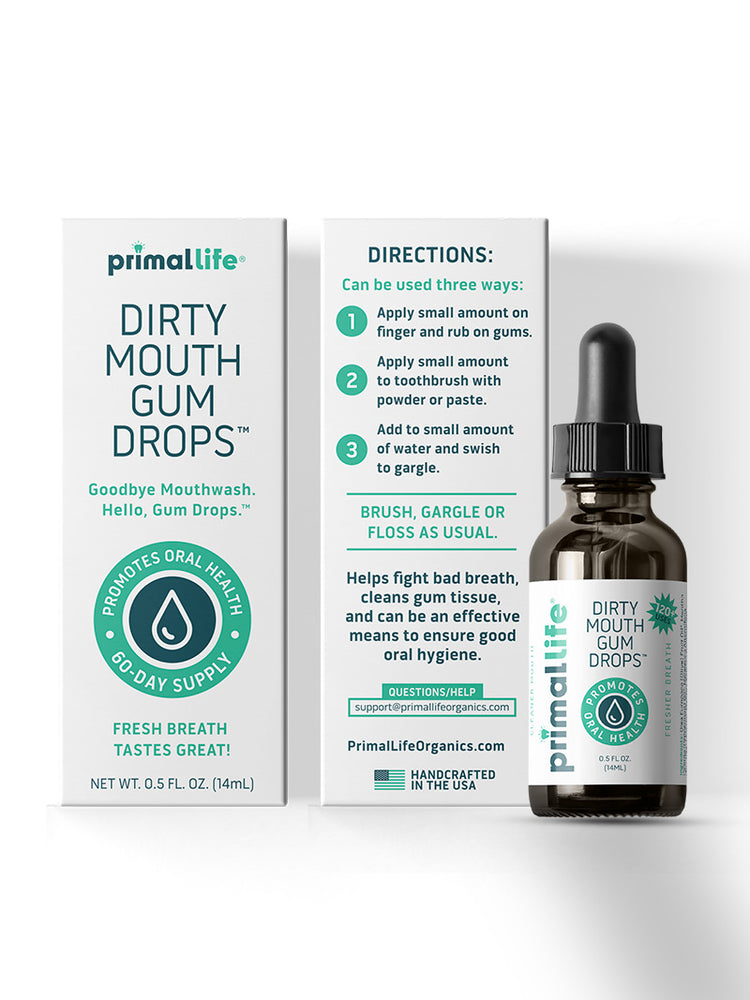What Your Skin is Saying About Your Gut Health
This article was updated on January 21, 2024
What’s been going on with your skin lately?
An aggressive breakout of adult acne that just won’t quit? Eczema rashes that keep you covered up in long sleeves and pants? Discoloration that you can’t explain?
Before you break the speed limit racing to the drugstore to buy $75 worth of skincare products that promise to give you perfect, ageless skin, there’s something you need to know.
The skin health woes you’re experiencing could be symptoms of issues that are more than skin deep. In fact, you may be able to trace them all the way back to your digestive system.
The Growing Interest in Gut Health
‘Gut health’ is more than a topic of scientific research. It’s become one of the most popular trends in health and wellness over the last 15 years. From obesity and brain function to cancer and longevity, gut health plays an integral role in the core foundation of human health.
We now understand the gut is the "second brain" of the body. This has us taking a closer look at how our eating and lifestyle habits influence our gut, and how our gut in turn impacts our health and quality of life.
What Is the Gut?
The gut, officially known as the gastrointestinal tract, begins in your mouth and continues through your entire digestive system. Trillions of bacteria, viruses, and fungi, known as the microbiome or microbiota, live in and shape the gut.
Think of your microbiome as an extra organ affecting your health as much as your heart or lungs. In fact, 70% of your body’s immune system is situated in your gut. This explains why the gut is responsible for so many essential functions in the body:
- Supporting digestion through the stomach and small intestine
- Producing vitamins B and K
- Fighting aggressive bacteria and foreign attacks
- Strengthening the immune system
- Controlling brain function
- Influencing blood sugar levels
Unfortunately, we live in a society where it’s nearly impossible to avoid toxins, processed foods, stress, and chemicals. These triggers compromise gut health and manifest themselves in symptoms ranging from subtle to severe.
What’s the Connection Between Gut Health and Skin?
The complex interconnection between gut health and skin is no surprise to practitioners of Ayurvedic and traditional Chinese medicine, who have long appreciated the role of the gut in health and disease. Modern Western medicine, on the other hand, has only recently come to explore this vital gut-skin axis.
The gut-skin axis encompasses the relationship between the gut and the skin. Changes in the gut may directly affect the condition of the skin, which is important to understand when tackling stubborn skin problems like psoriasis and acne.
As the largest and most visible organ, your skin is the Great Communicator of your body. It’s able to reflect the condition of your internal health in a unique (and valuable!) way, especially when it comes to your gut.
While healthy gut microbes help to reduce widespread inflammation and nurture homeostasis, any microbial imbalance does exactly the opposite. Any time pathogenic bacteria has the opportunity to accumulate in the gut, the skin shoots off SOS flares in the form of common conditions like dermatitis and eczema.
Overall, the gut health and skin axis identifies four main correlations between altered gut bacteria and the development of autoimmune and inflammatory diseases of the skin.
SIBO Triggers Rosacea
Small intestinal bacterial overgrowth is a digestive disorder caused by a surplus of bacteria in the small intestine. The bacterial overgrowth triggers an inflammatory response in the gut that leads to unpleasant symptoms like bloating, stomach pain, diarrhea, and, according to recent research, the skin condition rosacea.
It’s easy to identify rosacea by the aggressive, red, pus-filled bumps and visible blood vessels that cover the face. Many studies have found that patients with rosacea have a higher prevalence of SIBO and other gut conditions than individuals with clear skin.
In fact, SIBO is 13 times more likely to be found in patients with rosacea than without it. This correlation suggests that just as SIBO triggers rosacea, SIBO treatment may eliminate rosacea symptoms by addressing the gut imbalances that led to bacterial overgrowth.
If you’ve been struggling with bouts of rosacea that seem to hit without rhyme or reason, optimizing your gut health may be the key to clearer skin.
Candida Overgrowth Triggers Psoriasis and Eczema
Yeast grows naturally in the body as part of our microbiota, especially in the mouth and gut. At normal levels, yeasts like Candida don’t cause problems, but Candida overgrowth is associated with serious gut distress that exhibits itself on the skin.
It doesn’t take long for Candida overgrowth to block the body’s anti-inflammatory responses. As inflammation grows, it nurtures colonies of fungal infection, which in turn accelerate inflammation. It’s no wonder that Candida overgrowth is directly linked to GI tract conditions like Crohn’s disease, ulcerative colitis, and gastric ulcers.
Unfortunately, the havoc that Candida wrecks on the gut becomes evident on the skin as well. Without a strong, balanced microbiota, the gut can’t properly protect the skin from infection and inflammation. This opens the door for chronic inflammatory diseases like psoriasis and eczema. It’s possible that the symptoms of eczema and psoriasis like red, itchy, flaking skin develop as the skin attempts to detoxify the body of the toxins unleashed by Candida.
Western Diet Aggravates Acne
As one of the most common skin disorders to affect adolescents and adults, acne is closely tied to gut health through diet. Decades worth of research suggests that diets high in carbohydrates and sugar increase the production of insulin and insulin-like growth factor-1 (IGF-1), both of which compromise gut homeostasis and trigger the mechanisms that cause acne.
4 Other Signs of Gut Problems You Never Knew Mattered
While poor gut health is busy creating chaos on your skin, it also may be the culprit behind other uncomfortable issues you’re experiencing. You wouldn’t think to link them together, but gut health could be responsible for your cavities, dry mouth, sinus infections, fatigue, and more!
Poor Dental Health
We already know that oral bacteria affects the microbiome of your gut, for better or worse. But that phenomenon also works in reverse! Gut health issues like poor digestion and leaky gut stunt your body’s ability to properly absorb and utilize essential vitamins and minerals.
Without a sufficient supply of calcium and phosphorus, saliva can’t remineralize tooth enamel or protect the teeth from acids and sugar. As a result, your poor gut health may be showing itself through cavities, decay, and gingivitis.
Frequent Colds and Sinus Infection
You can’t separate your immune system from your gut health; they’re one and the same. The bacteria that lives in your gut are responsible for maintaining balanced immune responses throughout your body. This means that the condition of your gut microbiota directly impacts the strength of your immune system.
If you always seem to be coming down with a cold or sinus infection, that could be your body’s way of shouting, "Hey! Gut bacteria is out of whack down here!”
Anything that harms or alters the microbiota communities in your gut has the potential to trigger immune dysfunction and autoimmune reactions.
Food Intolerance and Sensitivity
Food sensitivities are so frequently overlooked because their symptoms are diverse, unpredictable, and unique from person to person. They develop when your digestive system clashes with a specific food or ingredient that you ingest.
In a healthy digestive system, food moves through your gastrointestinal tract after your chew and swallow. Digestive juices, enzymes, and chemicals in your digestive system break food down into smaller pieces of nutrients that can be used strategically throughout the body.
This natural process veers off track if your digestive system reacts improperly to something traveling through your GI tract. Research now suggests that imbalanced gut bacteria alter the body’s reaction to food, sometimes creating an unnecessary or harmful immune response to otherwise harmless foods.
Brain Fog and Fatigue
Your busy schedule and high-stress job may not be the only factors to blame for your fatigue and brain fog. Research shows that people with chronic fatigue syndrome have less diversity of gut bacteria than healthy individuals, but more species of bacteria that actively promote inflammation. This suggests that intense feelings of fatigue and brain fog are directly linked to the condition of the GI tract.
The Best Ways to Improve Your Gut Health Naturally
It might be your first instinct to temporarily relieve your symptoms, skin issues, and other health problems with medications or cosmetics, but those measures won’t address the real issue: the topsy-turvy condition of your gut.
If you really want to optimize your wellness and reduce those nagging symptoms, start by healing your gut health naturally.
Detox Your Body
Detoxification is a strategy that blends herbs, nutrients, juices, supplements, and nutritious foods to enhance your body’s natural detoxification mechanisms. The goal is to purge excess toxins from your body to help your gut recalibrate.
There’s no one right way to detox, so explore options to find a detoxification routine that will earn your full commitment.
Cut Out Gluten, Dairy, and Sugar
Gluten, dairy, and sugar are the main triggers for GI tract issues since they cause excessive inflammation and damage the intestines. By removing sources of gluten, casein, and refined sugar from your diet, your body can begin healing the holes in your gut and rebalancing healthy bacteria.
Limit and remove the following foods from your diet in order to cut out gluten, dairy, and refined sugar:
- Refined carbohydrates like flour, bread, and pasta
- Cow’s milk and cheese
- Packaged and processed snacks like chips, crackers, and pretzels
- Sugary treats and desserts like cakes, cookies, and brownies
Increase Nutrient Absorption With Healthy Fats
It’s likely that your gut troubles have compromised your nutrient absorption over time. Eating more healthy fats is a quick and easy way to improve absorption of fat-soluble vitamins. Enjoy more of these healthy fats to help your body utilize vitamins A, D, E, and K:
- Avocado
- Nuts and seeds
- Extra virgin olive oil
- Whole eggs
- Salmon and other fatty fish
Begin Taking Probiotics
It’s critical that good bacteria outnumber bad bacteria in your gut. As soon as dangerous pathogens take control of your GI tract, your health suffers the consequences. Probiotics are supplements containing live bacteria meant to nurture and cultivate your gut flora.
Extensive research on the benefits of probiotics shows that taking probiotics on a daily basis can improve everything from constipation and periodontal disease to atopic dermatitis and acne. All of this, simply by restoring homeostasis to the gut!
How to Use Skincare Products to Improve Your Complexion
Once you’ve set the foundation for better gut health, natural skincare products will deliver more dramatic results as you work to revitalize your complexion. Keep these two essential tips in mind as you select the best products for skin rejuvenation.
Swap Water-Based Products for Oil-Based Formulas
Don’t be fooled by the clever marketing campaigns of name brand beauty products. Nearly every skincare product they sell contains water as the main ingredient. I know it sounds counter-intuitive, but water-based skincare products actually suck the moisture out of your skin like a plum shrinking into a wrinkled prune.
Water-based skin care products also disrupt the natural sebum oils that moisturize and protect your skin. Healthy bacteria thrive in sebum to prevent acne and other unwanted skin problems, so anything that threatens sebum oils automatically threatens the health of your skin.
Oil-based formulas offer the saving grace your skin needs. A face wash, moisturizer, or serum made with oils protects natural oils while simultaneously infusing your skin with rich nutrients that it hungrily gobbles up.
Ditch Products With Harsh Ingredients
You practically need a Master’s Degree to interpret the ingredients listed on most cosmetic and skincare labels. That’s because most brands don’t want you knowing they pour a laundry list of toxins, chemicals, and harsh ingredients into the products they claim are so great for your skin.
Consider these common cosmetic ingredients that you definitely don’t want near your face:
- Sodium Lauryl Sulfate (SLS), a known skin, lung, and eye irritant with the potential to interact with other chemicals to form a known carcinogen called nitrosamine.
- Triclosan, an antimicrobial chemical that’s easily absorbed into the skin and bloodstream, where it causes widespread damage like hormone function interruptions, allergies, and antibiotic resistance.
- Parabens, synthetic compounds possessing estrogen-mimicking properties associated with an increased risk of breast cancer for men and women alike.
- Synthetic colors derived from petroleum or coal tar. Research connects these fake colors to numerous health problems including cancer and skin irritation.
You definitely wouldn’t spend $30 on a jar of moisturizer if its label told you the truth about these ingredients.
Fortunately, it’s easy to eliminate every single harsh ingredient from your skincare routine by choosing preservative and toxin-free products formulated with natural and essential oils, clays, and plant-based extracts.
The drastic difference between traditional and natural skincare products is most evident when comparing products made to fight acne. A commercial acne face product uses salicylic acid or benzoyl peroxide to kill bacteria on the skin linked to acne. Unfortunately, this wipes out productive, nurturing bacteria as well, leaving your skin vulnerable to dryness, infection, irritation, and even worse skin conditions like eczema and psoriasis.
Compare that to the Primal Life Organics Banished Blemish Serum. This lightweight spot treatment adds a little heat and ice to your breakouts to stimulate healing. It is made with jojoba oil which is known as an excellent skin balancer and conditioner and addresses breakouts without over-drying the skin for a clearer, healthier-looking complexion.
The bottom line? The secret to beautiful skin isn't quite as complicated as you'd think: heal your skin from the inside-out by optimizing your gut, and heal your skin from the outside-in with the best oil-based skincare products.
Articles You May Be Interested In:
- HOW OFTEN SHOULD YOU EXFOLIATE DURING WINTER? A GUIDE TO HEALTHY SKIN IN THE COLDER MONTHS
- ARE YOU AT RISK FOR OSTEOPOROSIS? OPEN YOUR MOUTH AND FIND OUT!
- SKIN DETOX GREEN SMOOTHIE
Resources
https://gut.bmj.com/content/67/9/1716
https://www.sciencedaily.com/releases/2018/05/180529132122.htm
https://www.ncbi.nlm.nih.gov/pmc/articles/PMC2515351/
https://www.ncbi.nlm.nih.gov/pmc/articles/PMC6048199/
https://www.ncbi.nlm.nih.gov/pubmed/27501017
https://www.ncbi.nlm.nih.gov/pmc/articles/PMC5718124/#b20-dp0704a08
https://www.jaad.org/article/S0190-9622(16)30014-7/fulltext
https://www.ncbi.nlm.nih.gov/pmc/articles/PMC3163673/
https://www.ncbi.nlm.nih.gov/pmc/articles/PMC5960518/
https://www.sciencedirect.com/science/article/abs/pii/S0190962216014857
https://onlinelibrary.wiley.com/doi/full/10.1111/exd.14016
https://www.ncbi.nlm.nih.gov/pmc/articles/PMC6427756/
https://www.ncbi.nlm.nih.gov/pmc/articles/PMC6104162/
https://www.ncbi.nlm.nih.gov/pmc/articles/PMC3337124/
https://www.nature.com/articles/s41575-018-0064-z
https://link.springer.com/article/10.1186/s40168-017-0261-y
https://medlineplus.gov/ency/article/000299.htm
https://nccih.nih.gov/health/probiotics/introduction.htm
https://link.springer.com/article/10.1007/s12602-017-9322-6
https://ntp.niehs.nih.gov/ntp/roc/content/profiles/nitrosamines.pdf
https://www.ncbi.nlm.nih.gov/pmc/articles/PMC6126357/
https://www.scientificamerican.com/article/should-people-be-concerned-about-parabens-in-beauty-products/
https://www.ncbi.nlm.nih.gov/pmc/articles/PMC2957945/







